As part of a major initiative to strengthen scientific research and conservation efforts for the critically endangered White-bellied Heron and other avian species in the landscape, the Royal Society for Protection of Nature (RSPN), in collaboration with the Department of Forest and Park Services (DoFPS), has launched a basic training program. This program focuses on the fundamentals of bird mist-netting, handling, ringing/banding, tagging, and preliminary screening for some of the avian diseases.
This training not only strengthens local capacity in avian research and conservation but also aligns with the broader One Health approach, recognizing the interconnectedness of wildlife, human, and ecosystem health, especially in the context of monitoring and managing zoonotic diseases in fragile ecosystems.
The first batch of this training includes participation from local community members, forestry officers from selected Divisions, and field staff of RSPN. The sessions are jointly conducted by avian experts from Austria and Germany alongside the RSPN team.
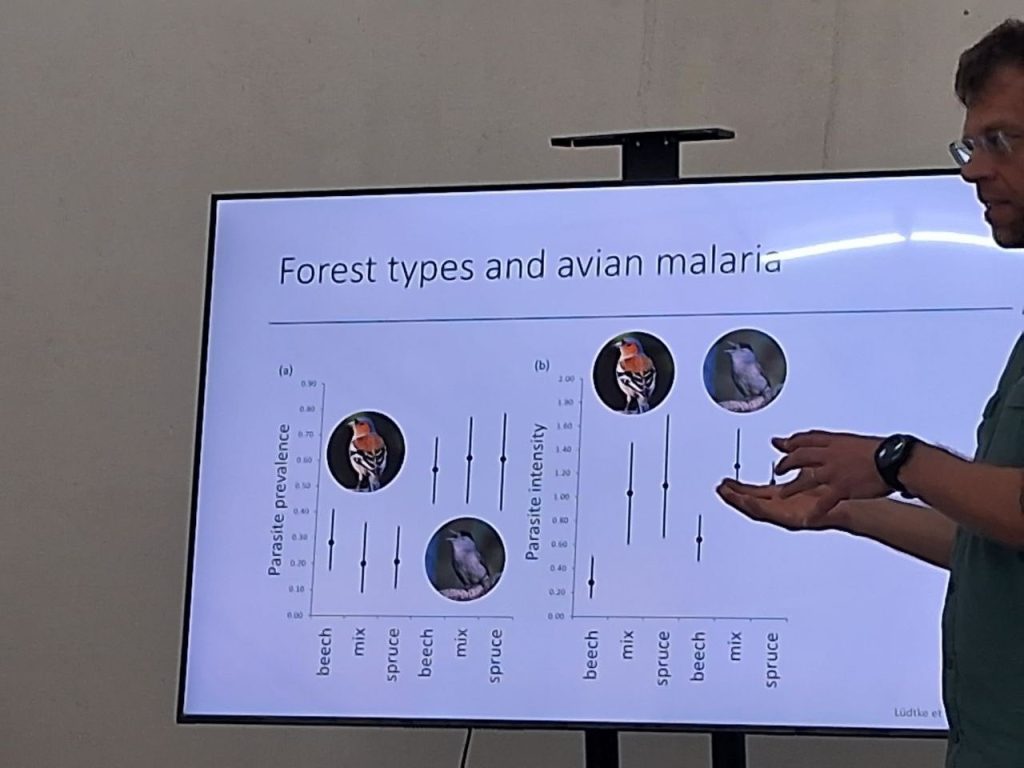
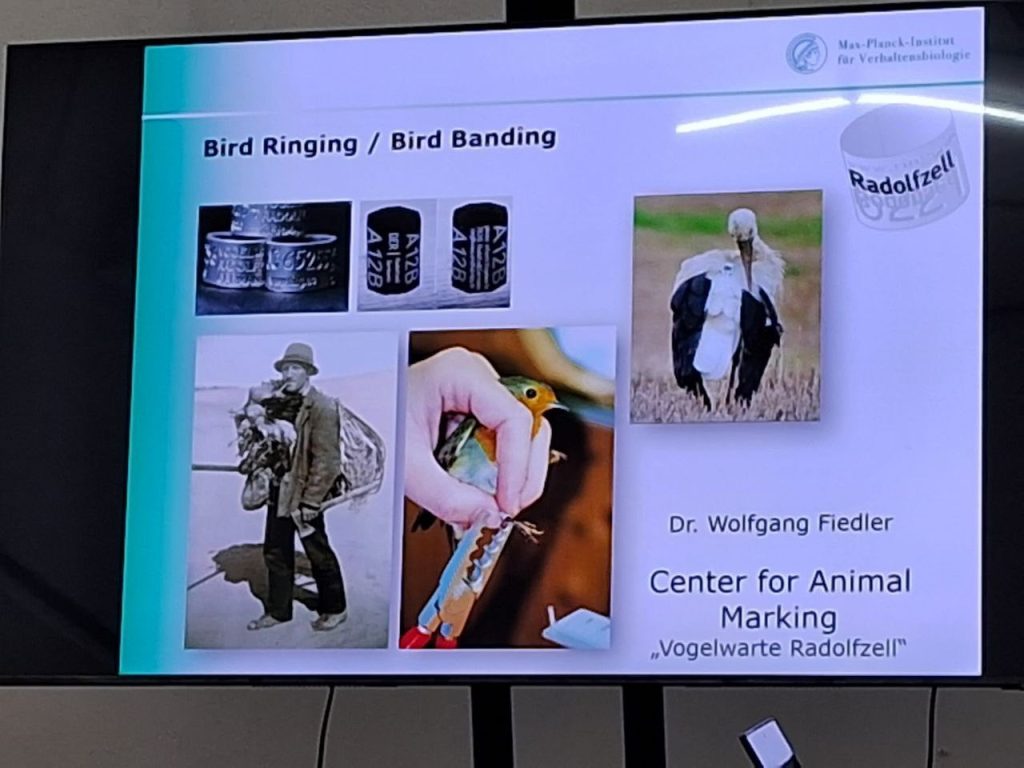
On the auspicious occasion of the Birth Anniversary of His Majesty the Third Druk Gyalpo, the Royal Society for Protection of Nature (RSPN Bhutan) is honored to launch the Annual White-bellied Heron Population Survey Report 2025.
Since 2003, RSPN, in collaboration with the Department of Forests and Park Services, has conducted annual surveys to monitor the status of this critically endangered species. These long-term efforts have been significant in understanding population trends, distribution patterns, prevailing threats, and guiding targeted conservation interventions.
This year’s survey recorded a total of 𝟮𝟵 𝗶𝗻𝗱𝗶𝘃𝗶𝗱𝘂𝗮𝗹 𝗪𝗵𝗶𝘁𝗲-𝗯𝗲𝗹𝗹𝗶𝗲𝗱 𝗛𝗲𝗿𝗼𝗻𝘀; 𝟮𝟰 𝗶𝗻 𝘁𝗵𝗲 𝘄𝗶𝗹𝗱 𝗮𝗻𝗱 𝗳𝗶𝘃𝗲 𝗮𝘁 𝘁𝗵𝗲 𝗪𝗵𝗶𝘁𝗲-𝗯𝗲𝗹𝗹𝗶𝗲𝗱 𝗛𝗲𝗿𝗼𝗻 𝗖𝗼𝗻𝘀𝗲𝗿𝘃𝗮𝘁𝗶𝗼𝗻 𝗖𝗲𝗻𝘁𝗲𝗿 (𝗪𝗕𝗛𝗖𝗖). The survey also identified four active nests; three in the Punatshangchhu river basin and one in the Mangdechhu river basin.
RSPN expresses its heartfelt gratitude to all donors, conservation partners, philanthropists, and stakeholders whose continued support makes this annual survey possible.
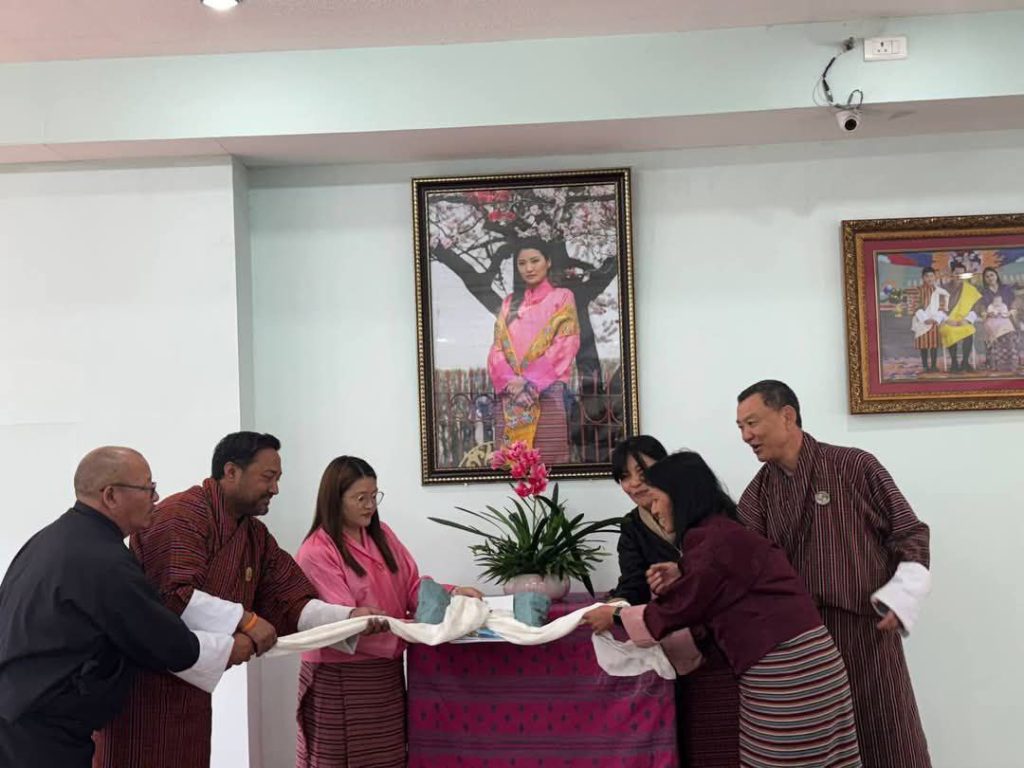
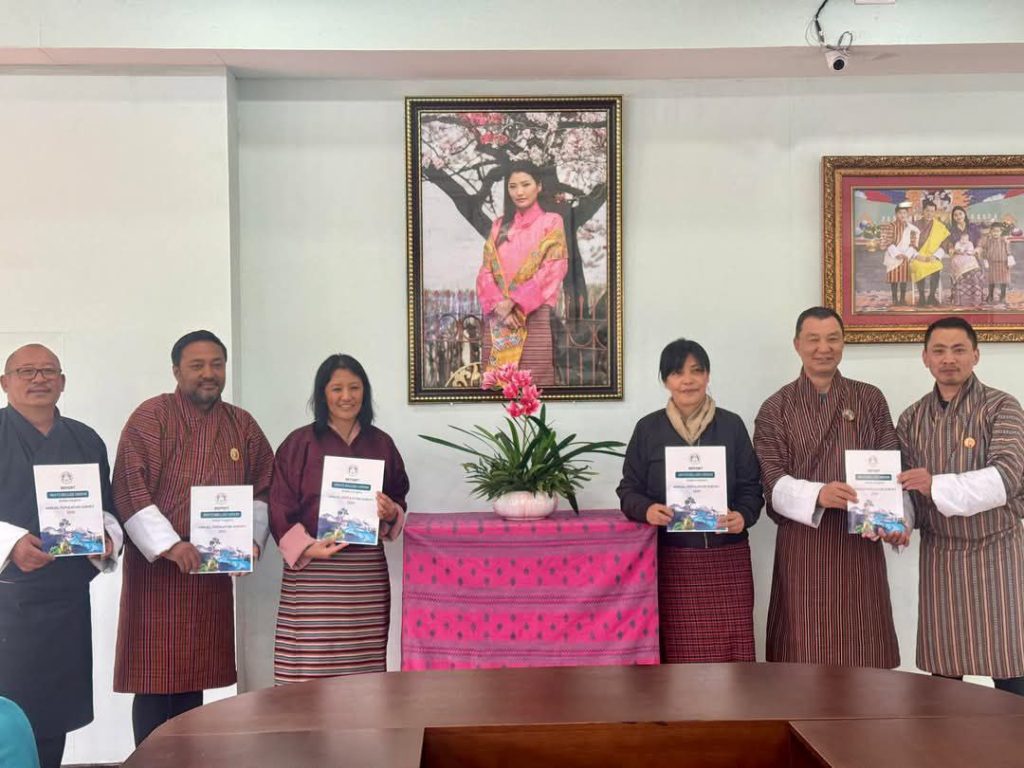
RSPN Bhutan hosted a two-day’s consultation meeting focused on creating sustainable livestock initiatives along the Mangdechhu and Punatshangchhu basins, which are crucial habitats for the Critically Endangered White-bellied Heron (WBH).
The meeting gathered key implementing partners from various government agencies ; Department of Livestock, National Livestock Research Centre (NLRC), Dzongkhag Livestock Officers, and Agriculture Officers from the six project districts.
The meeting focused on creating sustainable, integrated livestock initiatives like beekeeping and fishery that will both support local communities and strengthen conservation efforts for the WBH.
We extend our gratitude to all the participants for your valuable inputs.
This activity is part of the IKI Project, “Developing Ecosystem-based Solutions for Managing Biodiversity Landscapes in Bhutan,” funded by the BMUV and co-funded by the MAVA Foundation and RSPN.
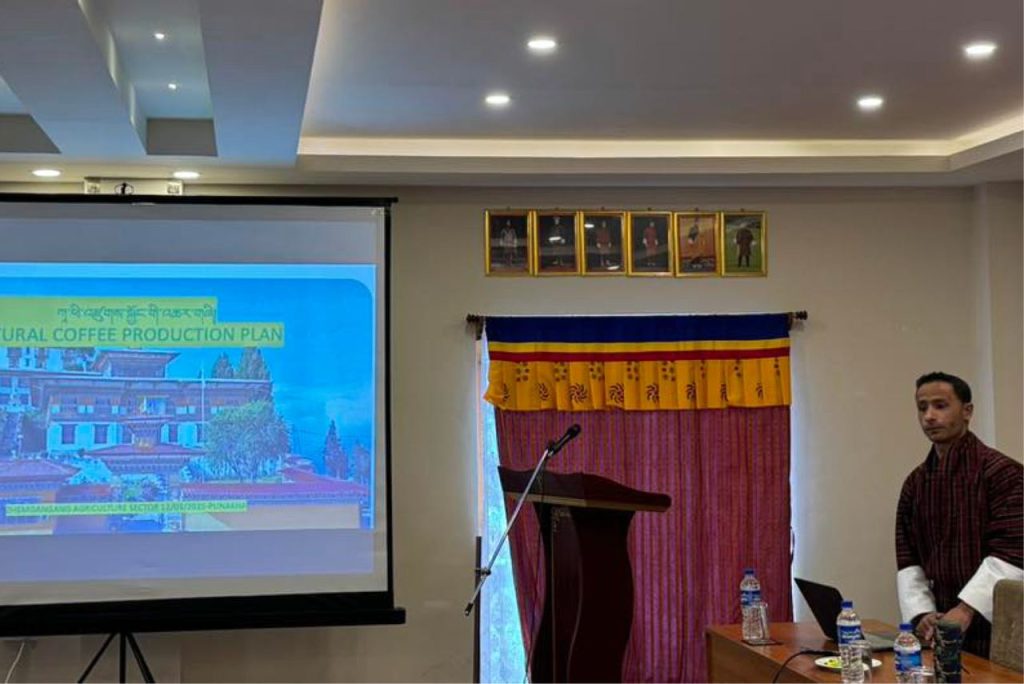
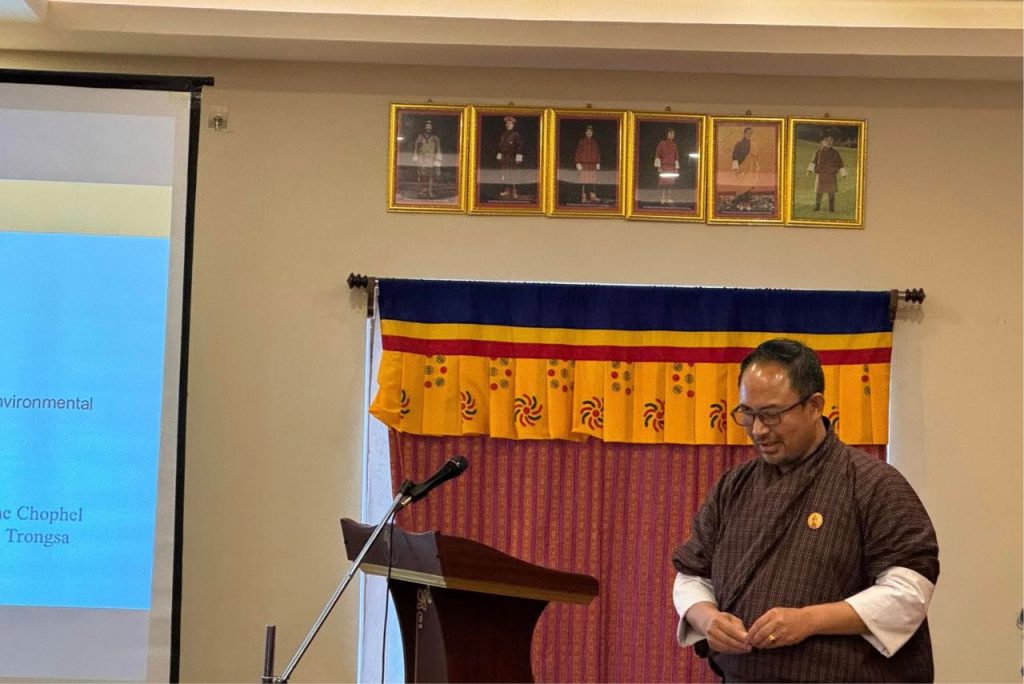
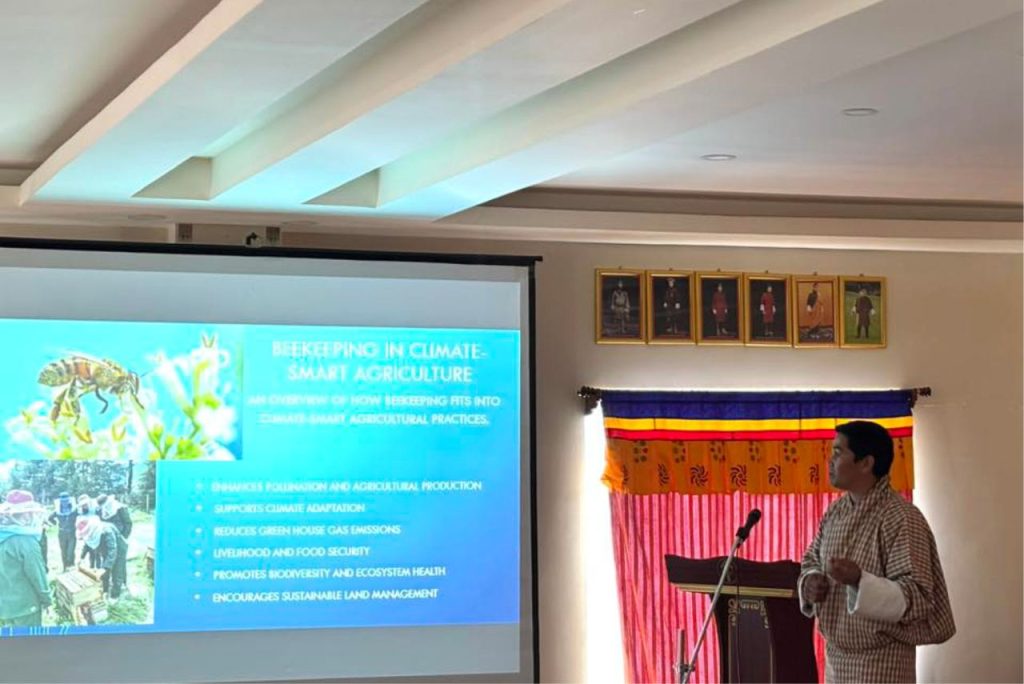
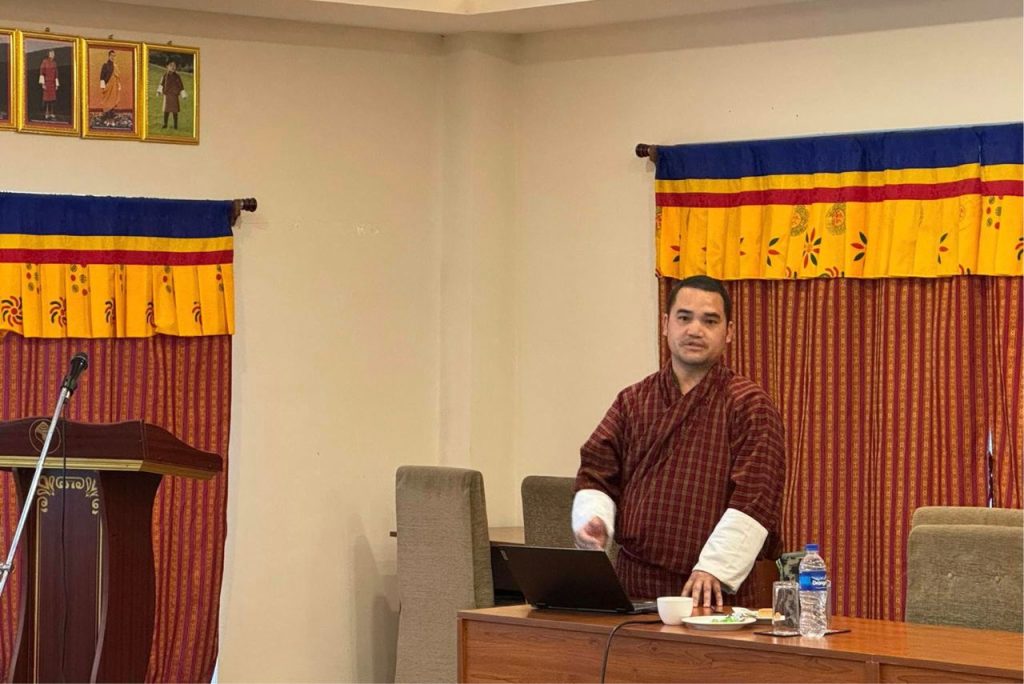
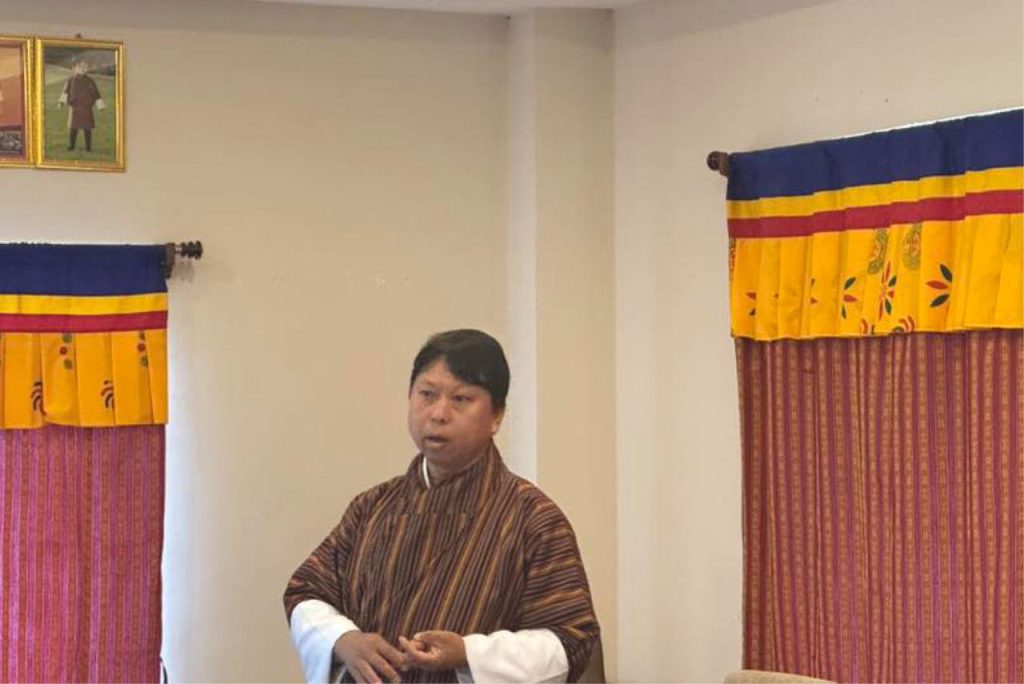
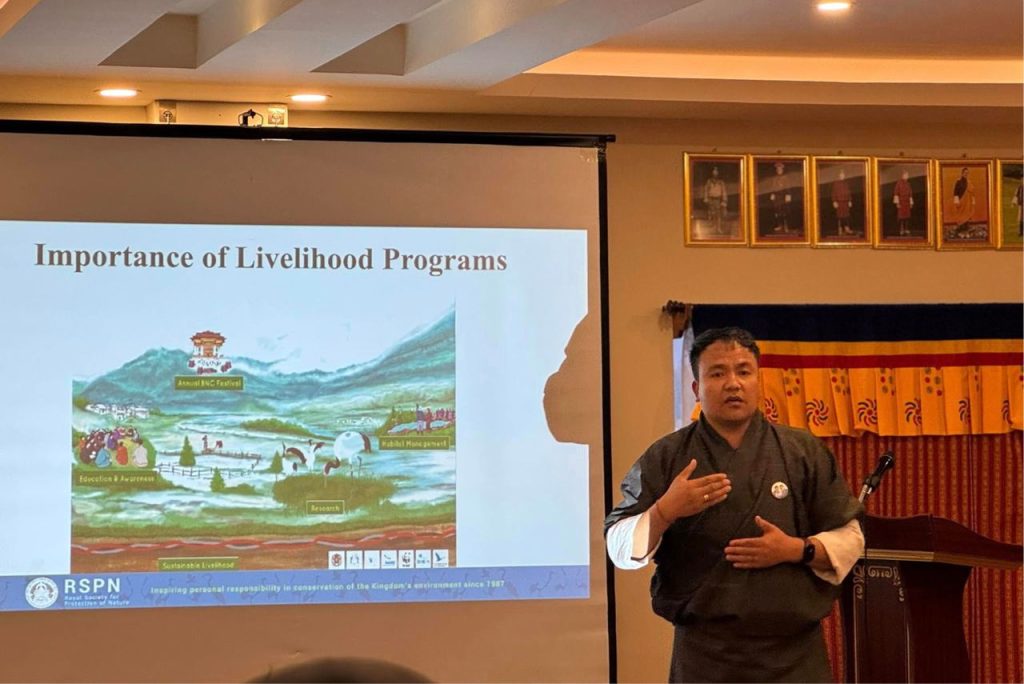
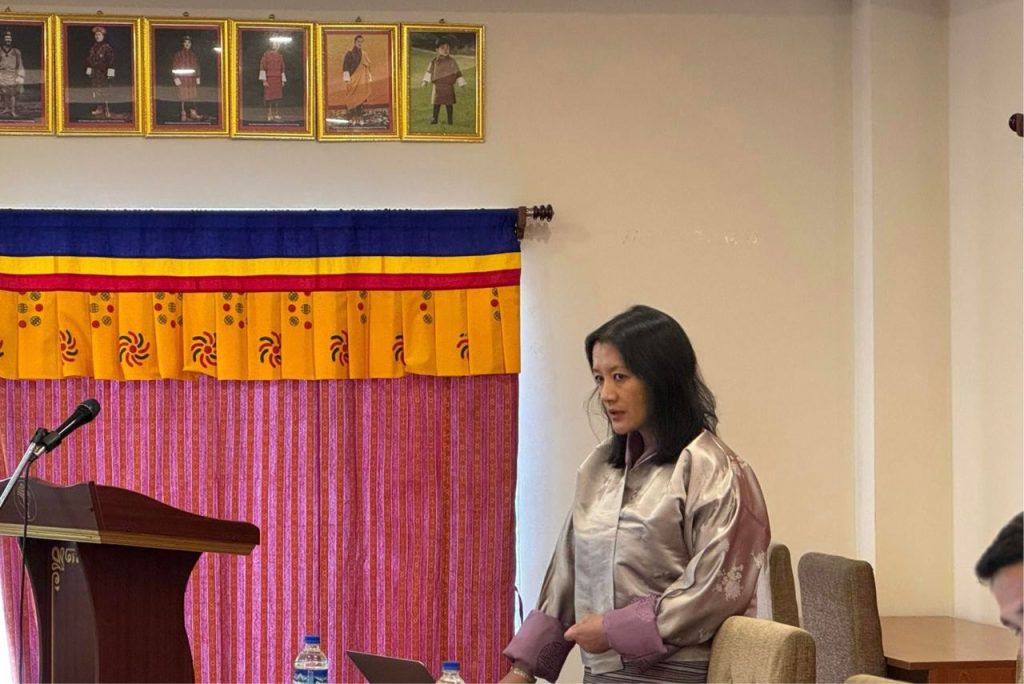
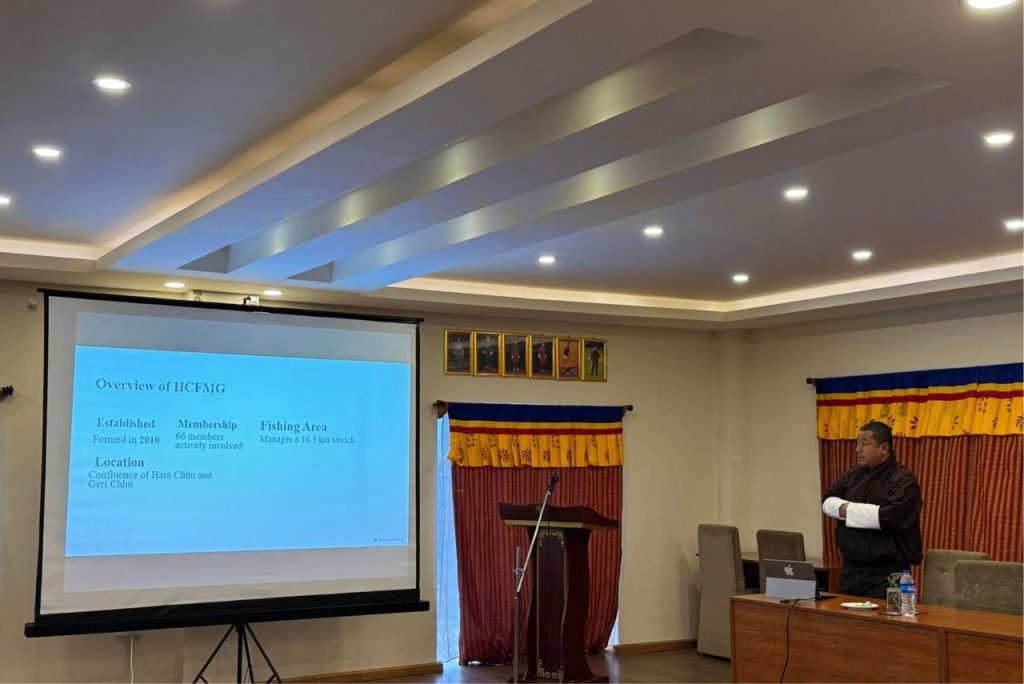
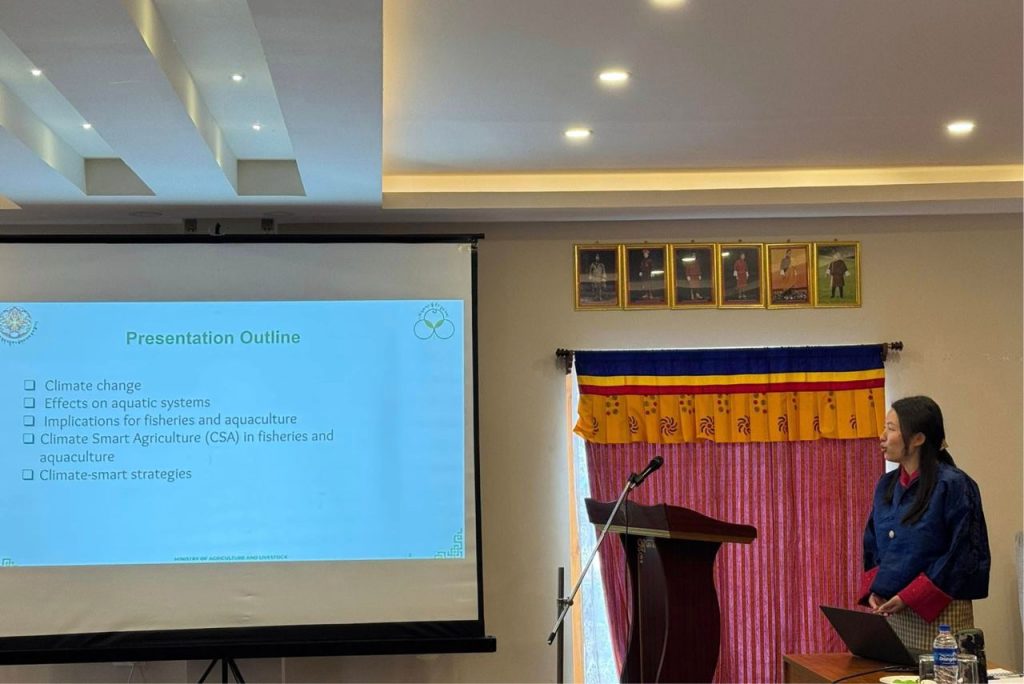
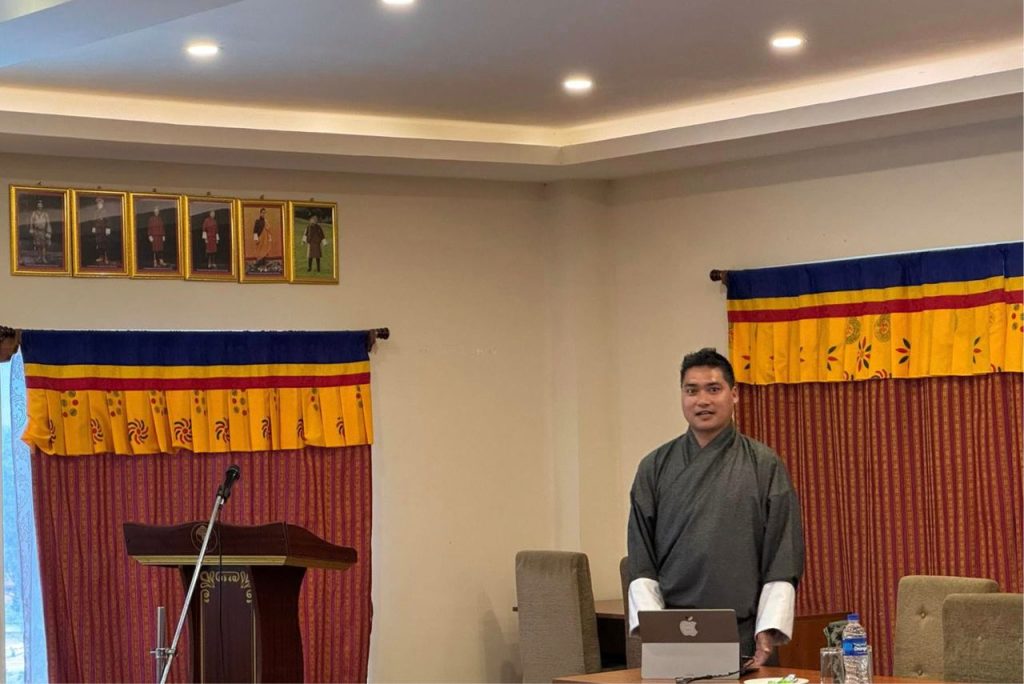
The consultation meeting organized by RSPN Bhutan aimed to discuss the development of community seed banks along the Mangdechhu and Punatshangchhu basins, one of the key habitats of the Critically endangered #Whitebelliedheron.
The meeting brought together representatives from various government bodies; Department of Agriculture, Royal Government of Bhutan, Department of Livestock, Royal Government of Bhutan, National Seed Centre, National Biodiversity Centre Bhutan, ARDC, and Dzongkhag Agriculture Officers from six project districts (Dagana, Punakha, Trongsa, Zhemgang, Tsirang and Wangduephodrang).
The meeting’s objective was to share ideas and foster collaboration to ensure the sustainability of community seed banks initiatives ultimately supporting the conservation and use of native/ traditional species and high yielding varieties.
This initiative is part of the IKI Project, “Developing Ecosystem-based Solutions for Managing Biodiversity Landscapes in Bhutan,” funded by the Federal Ministry for the Environment, Nature Conservation, Nuclear Safety and Consumer Protection (BMUV) through the International Climate Initiative (IKI), with co-funding from the MAVA Foundation, Switzerland, and the Royal Society for Protection of Nature (RSPN).
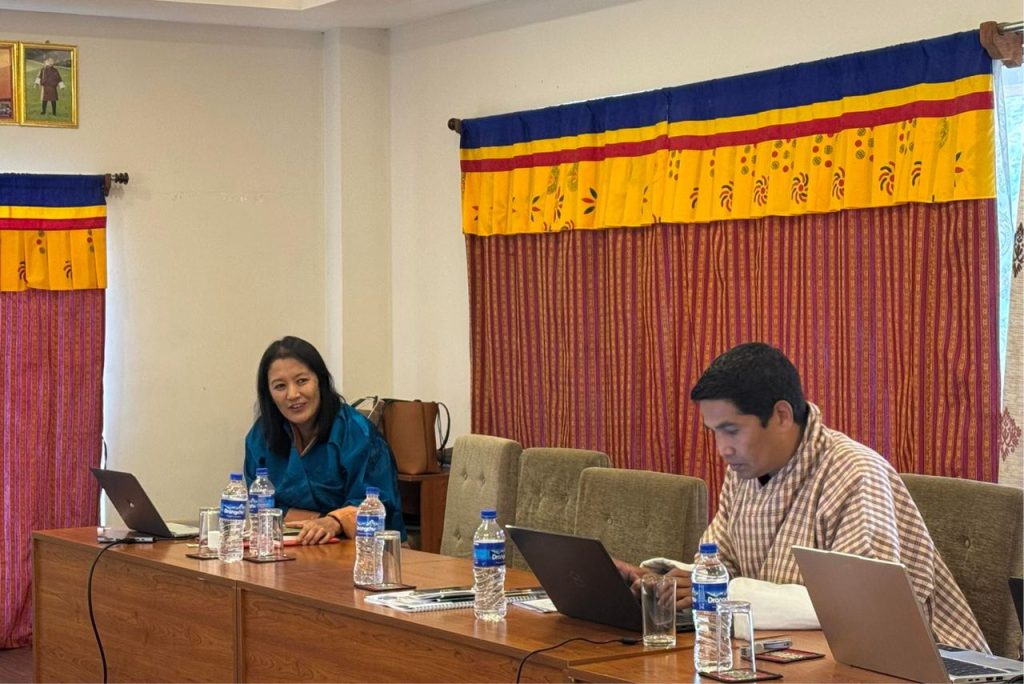
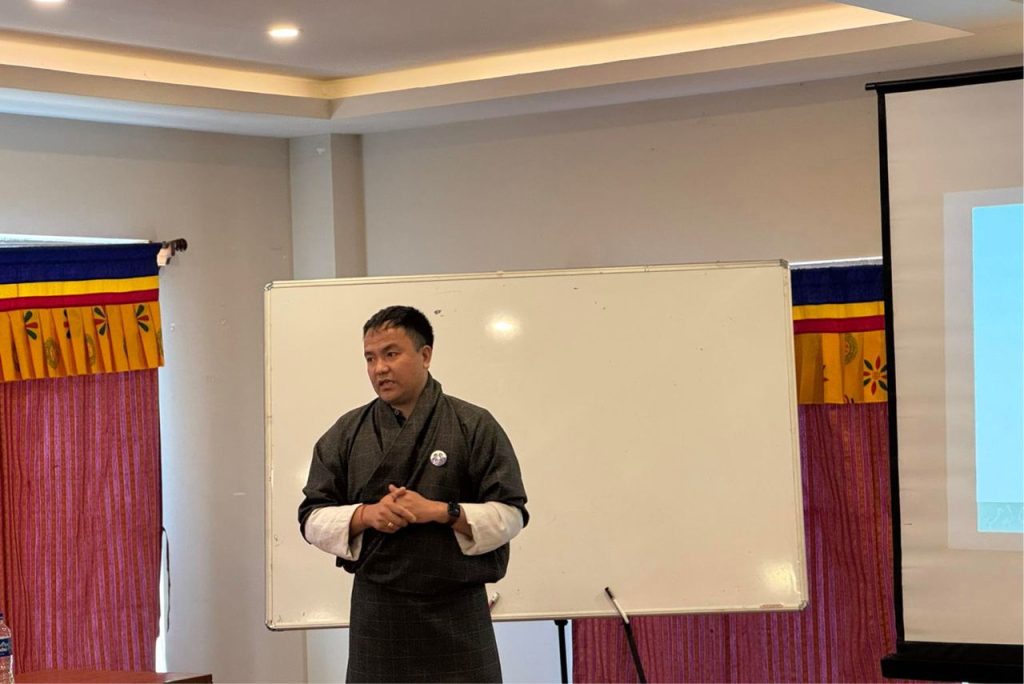
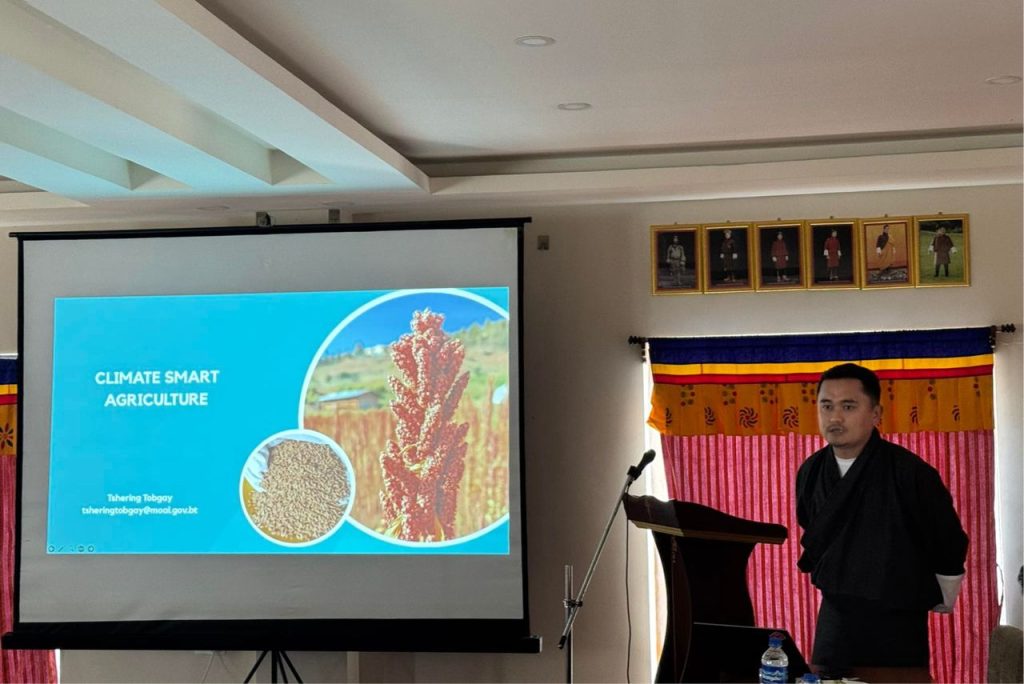
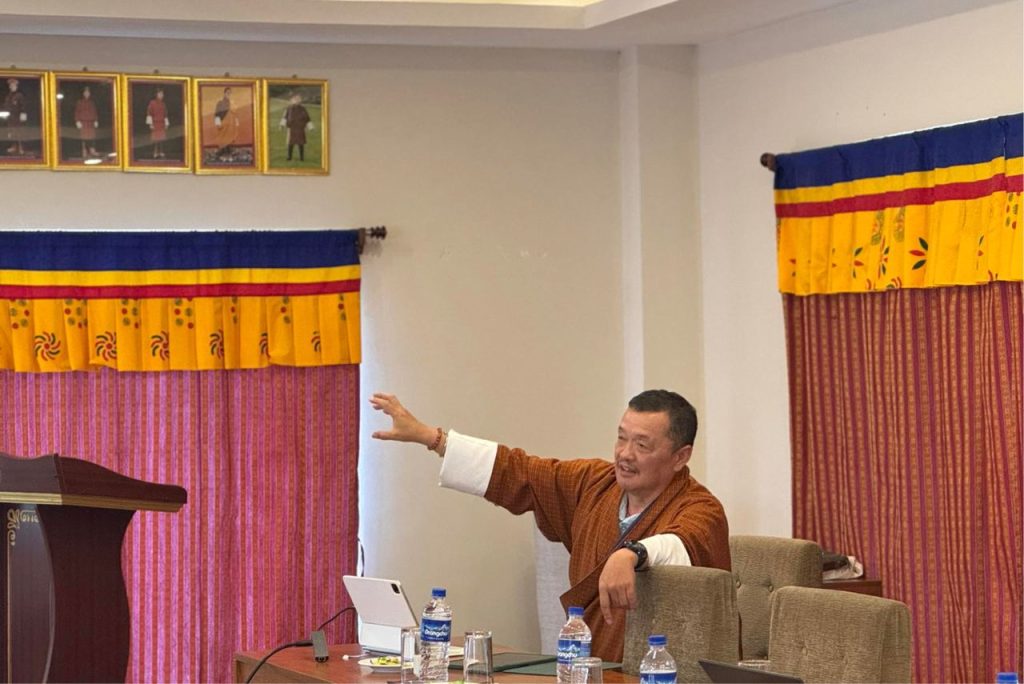
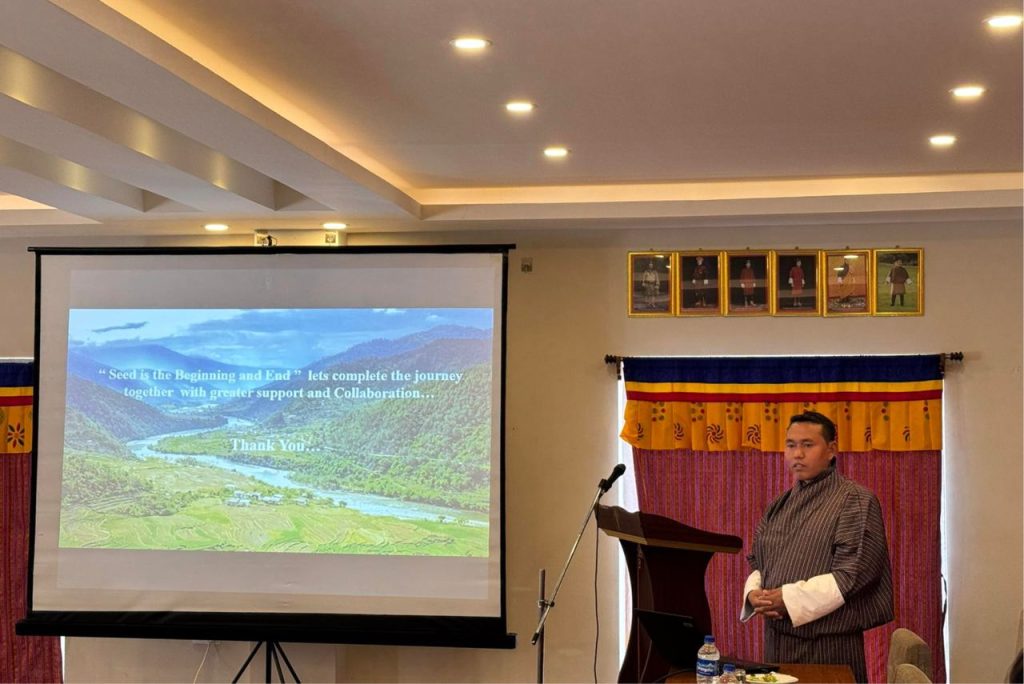
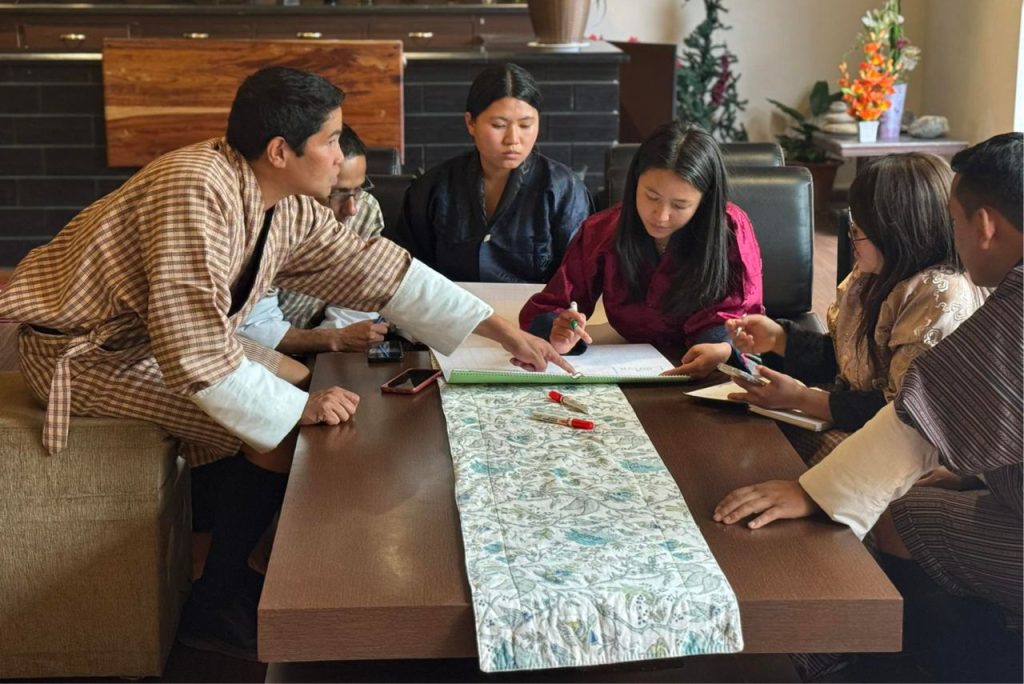
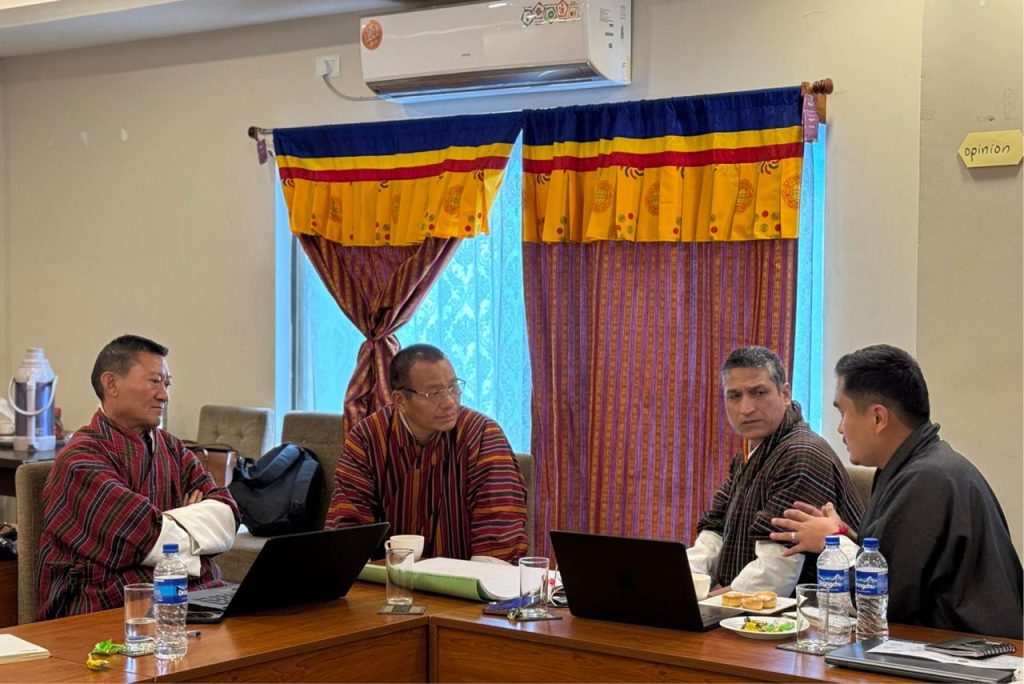
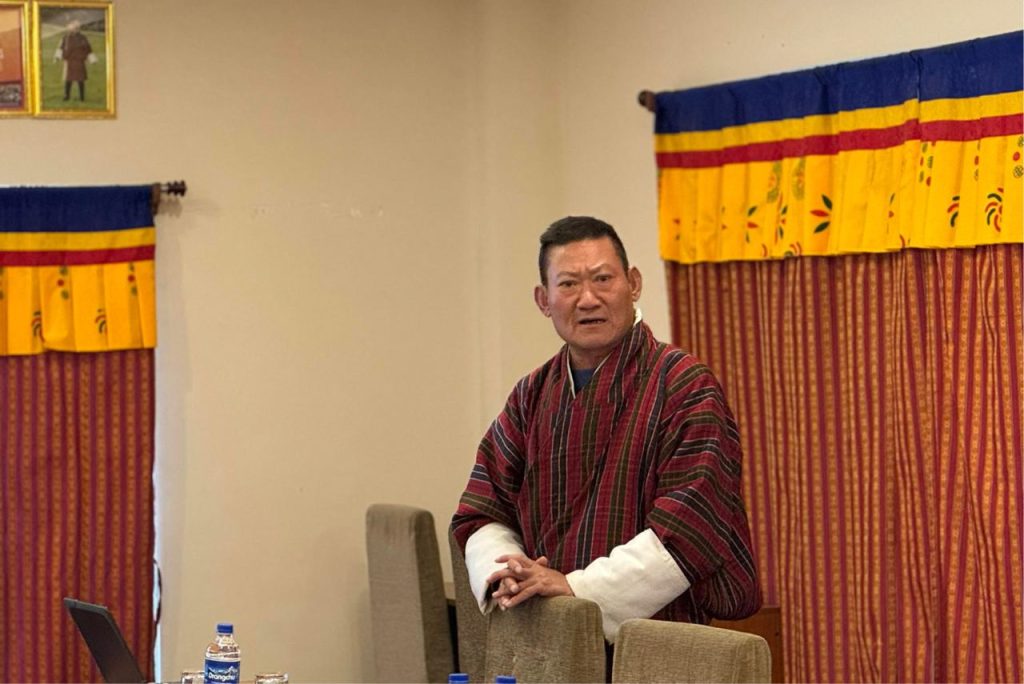
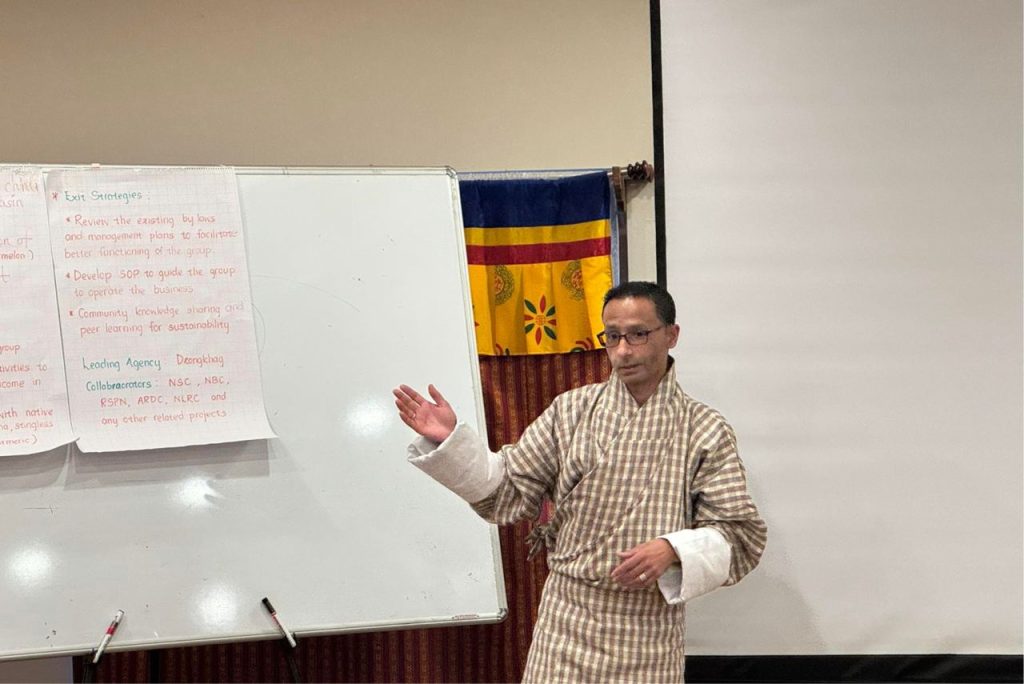
The community forest in Laja Gewog under Dagana district associates their name to their holy site of Guru Rinpoche that resembles the frontier sky fortress, featuring a religious bell hanging from a cliff and an Urn (Thro), Tha Namkhai Dzong. The community forest group there consist of more than twenty members. In 2022, RSPN supported the community forest to restore their degraded forest of 1 acre with plantation activity. The choice of species include mixed of native trees and high-value timber species that will benefit both the wildlife and the communities.
The team from RSPN recently visited the plantation area and observed good post-plantation care. The growth of trees observed significant progress with 98% survival rate. As a way forward mechanism, team also interacted with the chairman and discussed the possible future collaboration and strengthening the post plantation as mandated by the government.
RSPN, under the IKI project funding is initiating to restore 50Ha of degraded areas within White-bellied Heron landscape with the plantation. The restoration activity is considered to benefit both the wildlife and the communities.
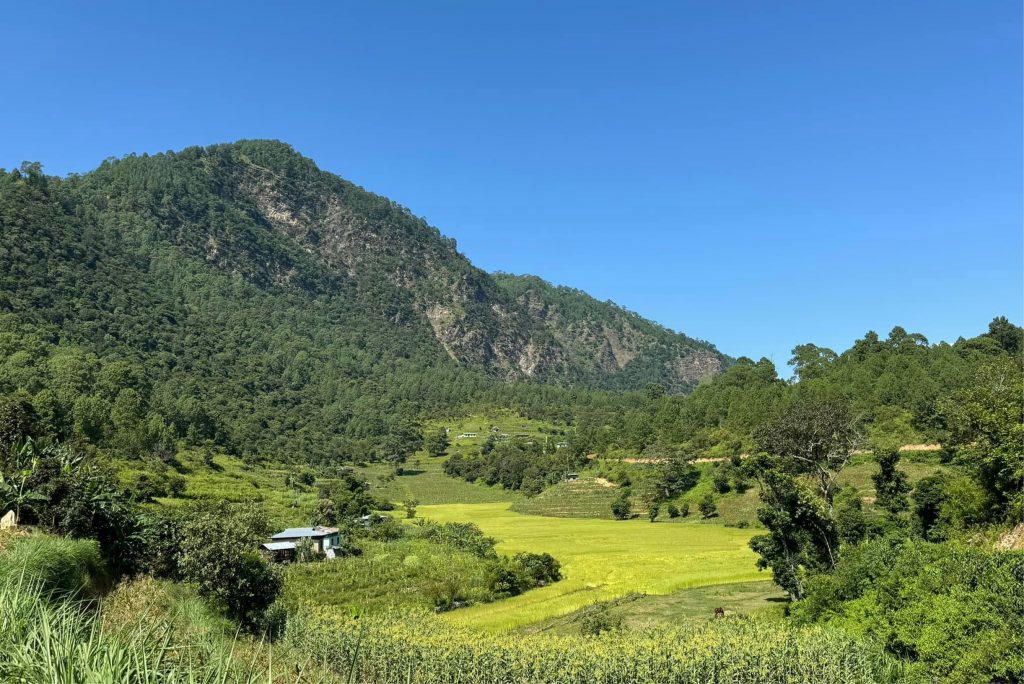
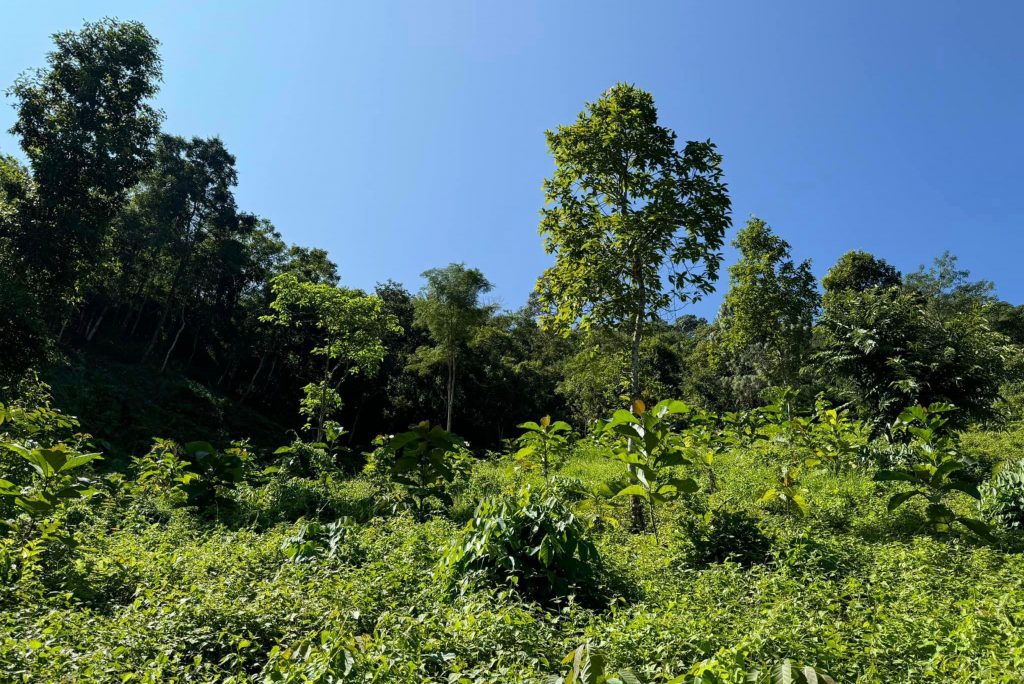
The staff of White bellied Heron Conservation Center conducted a White-bellied Heron advocacy program in response to the Tashiding school staff request to visit the conservation center. The program aimed to provide insights into the ecological importance of White bellied Heron, supporting the school’s efforts in developing a White- bellied Heron Green Park and raising awareness within the community.
The program began with a presentation on RSPN role and programs and the White- bellied Heron ecology, the benefits of conserving WBH (ecological, socioeconomic), and means to mitigate the threats to WBH. Later the participants were introduced to captive breeding facilities of WBH and provided guided tours to information unit learning about Heron biology, behavior, ecology and threats.
The advocacy program successfully met its objectives of raising awareness and fostering a sense of responsibility among participants towards environmental conservation. Feedback from the participants indicated that the program was both educational and inspiring. Moving forward, it is crucial to maintain momentum by continuing to engage students in conservation initiatives and providing them with opportunities to contribute positively to the environment. A total of 25 participants were present with 17 female and 8 male participants.
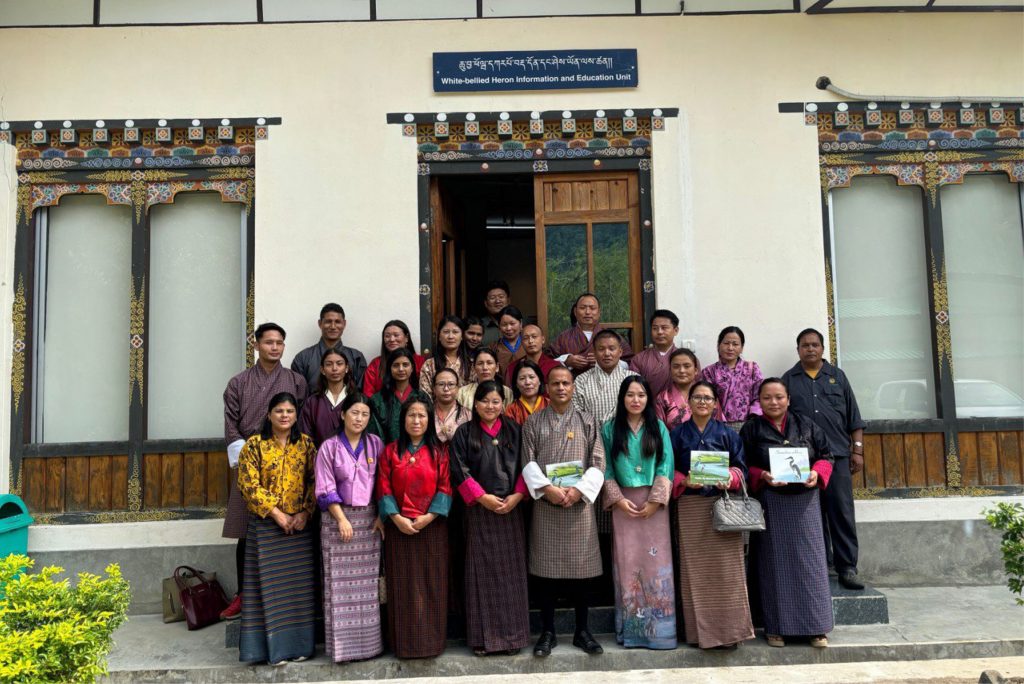
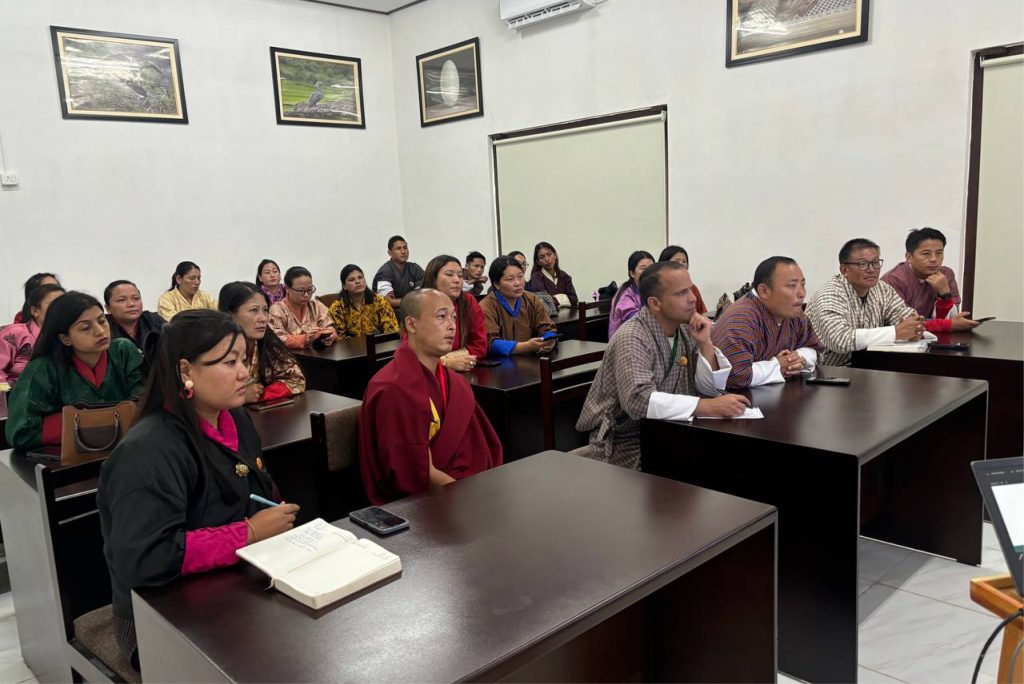
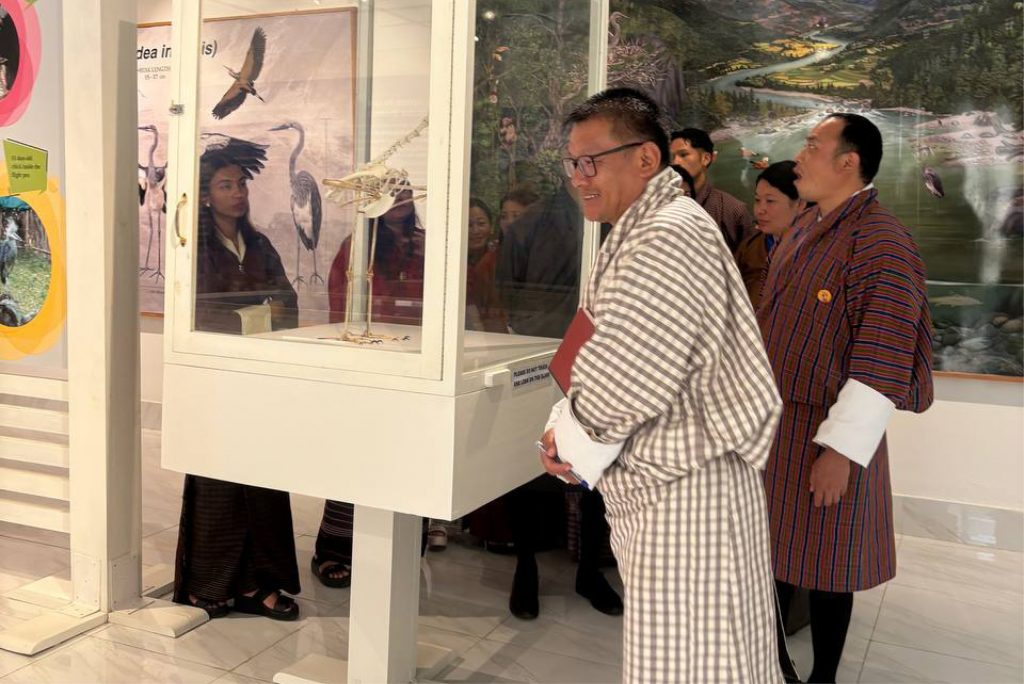
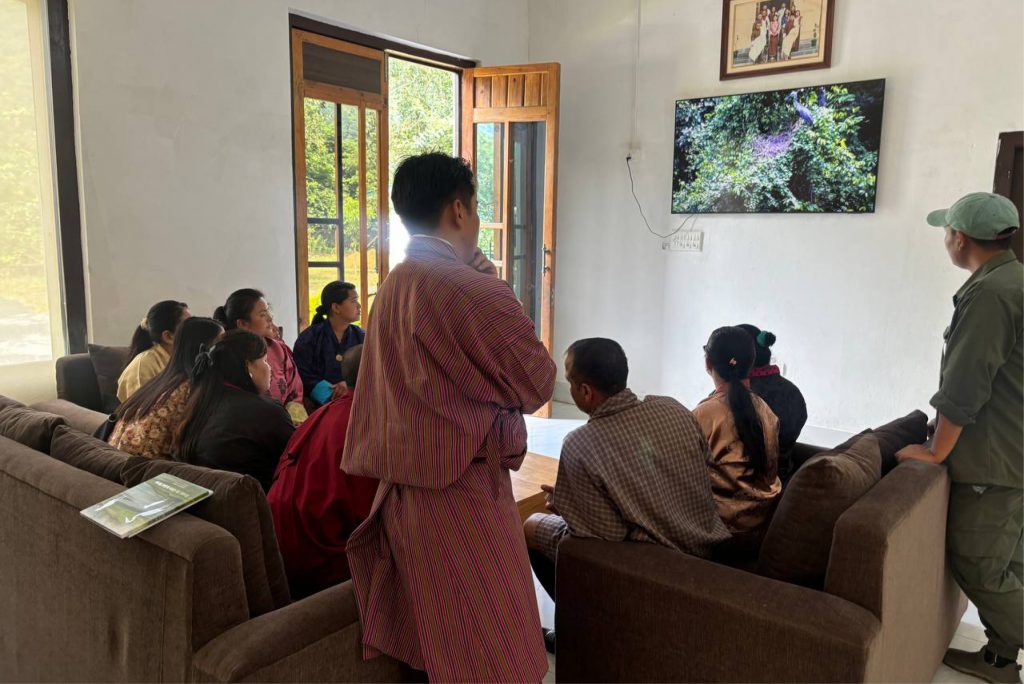
White- bellied Heron is classified as a critically Endangered species because it has an extremely small and rapidly declining population. This decline is projected to increase in the near future as a result of loss and degradation of lowland forest and wetlands, and through direct exploitation and disturbance. In an effort to raise awareness and promote conservation efforts among the forest officials and community, RSPN staff of White-bellied Heron Conservation team organized an advocacy program to forest Officials and the Kilkhorthang community on 17th October 2024. RSPN and Forest officials have a long-standing collaboration in promoting the conservation of the White-bellied Heron, and this program was another step in their joint efforts.
The program began with a presentation on RSPN role and programs and the White-bellied Heron ecology, the benefits of conserving WBH (ecological, socioeconomic),and means to mitigate the threats to WBH. Later the participants were introduced to captive breeding facilities of WBH and provided guided tours to information unit learning about Heron biology, behavior, ecology and threats.
The advocacy program successfully brought together forest officials and community members to discuss the conservation work of the White- bellied Heron. The program fostered collaborative support and laid the groundwork for future initiatives to protect the species and its habitat. Sustained efforts and active participation from all stakeholders will be essential to ensure the long-term survival of the White- bellied Heron. There were a total of 18 participants with 3 female and 15 number of male participants.
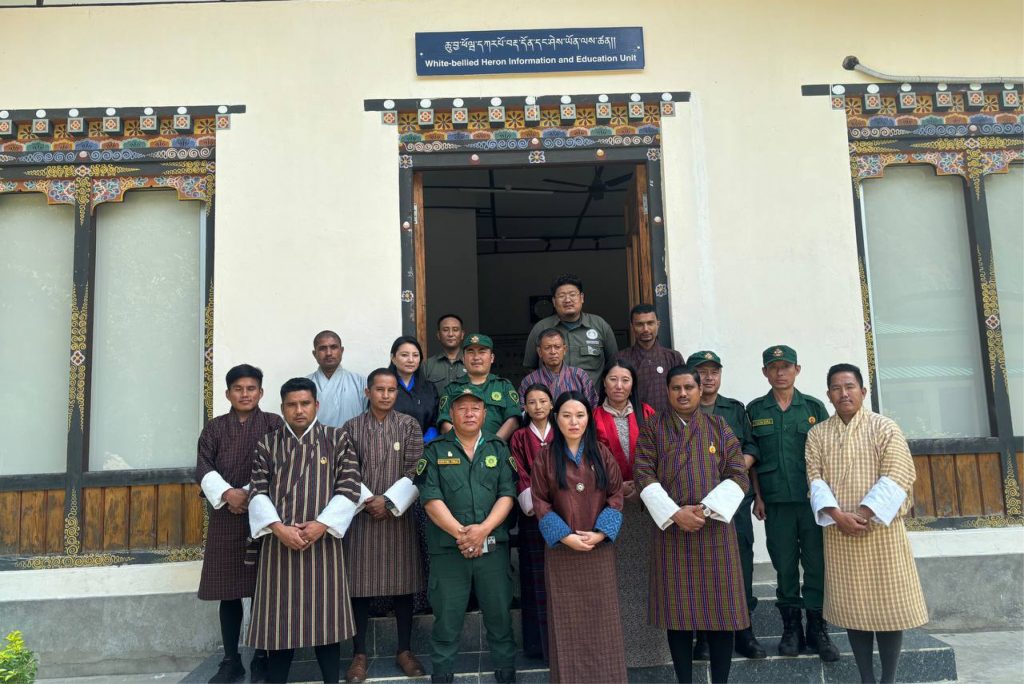
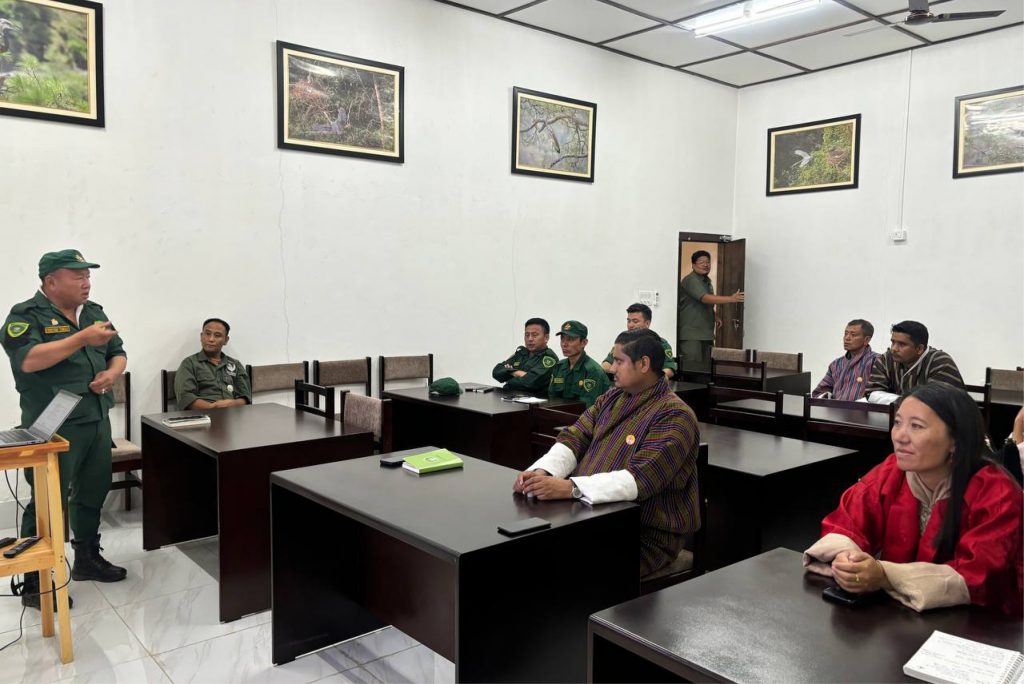
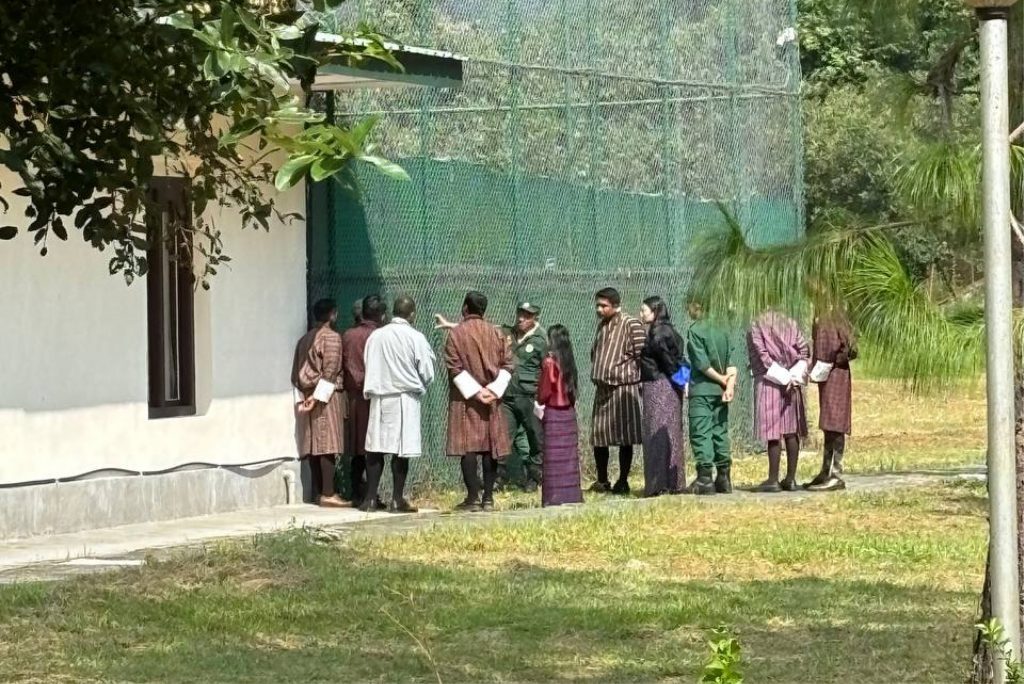
As the harvest season approach, Ap Dorji Rinchen, a resident of Toedwang gewog in Punakha, can finally rest without sacrificing his sleep to guard his six acres of wetland from wild boars and other animals. Earlier,the community had built 11 temporary sheds around the fields for protection,with each household taking turns to monitor the crops overnight.
Now with the introduction and support of electric fencing by the RSPN, the situation has improved significantly. This intervention, which covers six villages has benefited 42 households and protects around 90 acres of farmland. The 17-kilometre stretch of fencing with a total budget of Nu 2.5 million was inaugurated on September 30th,2024.
Prior to the project’s implementation, the local residents were felling trees from the nearby banks of the Phochhu River to use as fencing poles. The resident shared that led to the habitat disturbance of local wildlife including the critically endangered White-bellied Heron (WBH) and highlighted the need for sustainable solutions to protect both the environment and the community’s livelihoods.
Currently, the High-Density Poly-ethylene (HDPE) pipes are used for the electric fence. The HDPE poles not only reduce the impact on local forests but also enhance the durability and effectiveness of the fencing system.
Last year, the WBH juvenile was spotted in Samdingkha area which shows that with the restoration and habitat improvement intervention, the WBH comes back to its natural habitat.
This activity is a part of IKI Project “Developing Ecosystem-based Solutions for Managing Biodiversity landscapes in Bhutan” funded by the Federal Ministry for the Environment, Nature Conservation, Nuclear Safety and Consumer Protection (BMUV), Germany through International Climate Initiative (IKI) with co-funding from MAVA Foundation, Switzerland and the Royal Society for Protection of Nature (RSPN).
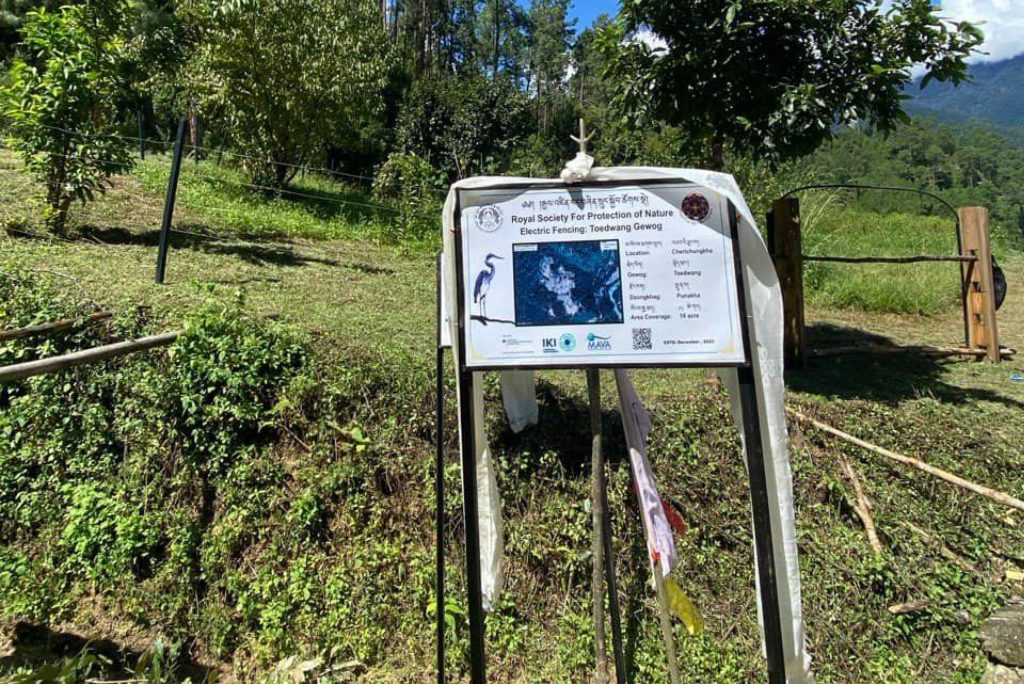
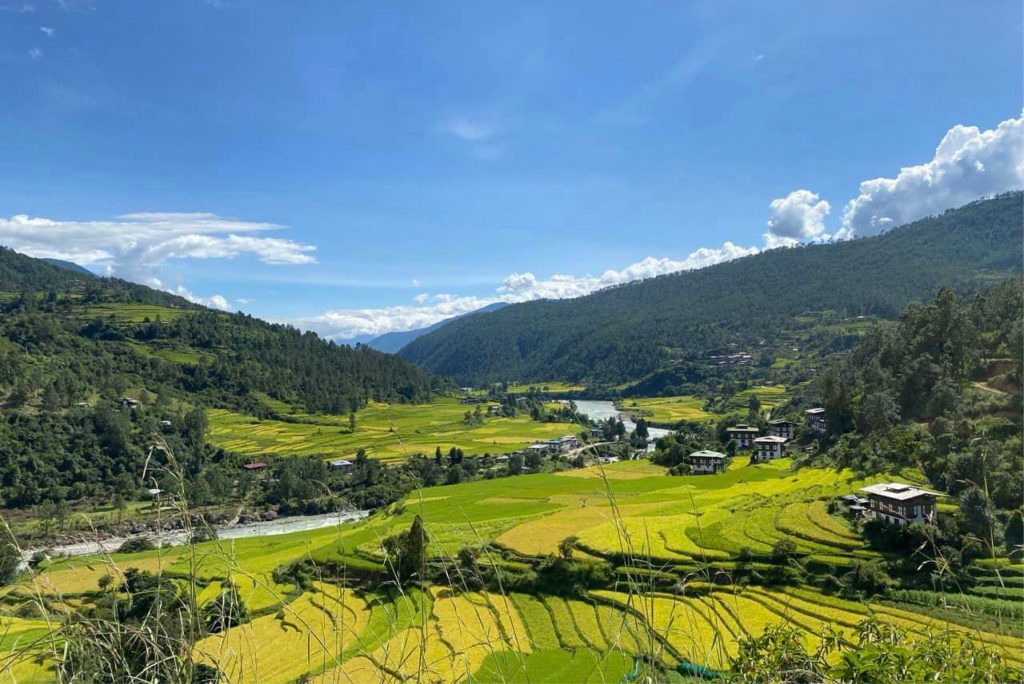
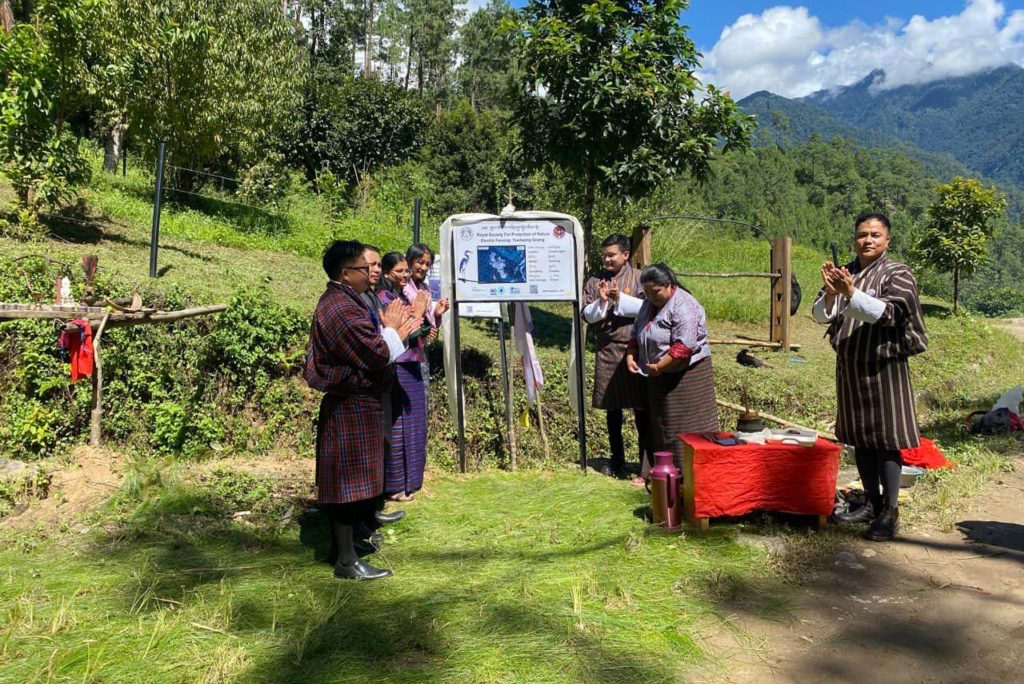
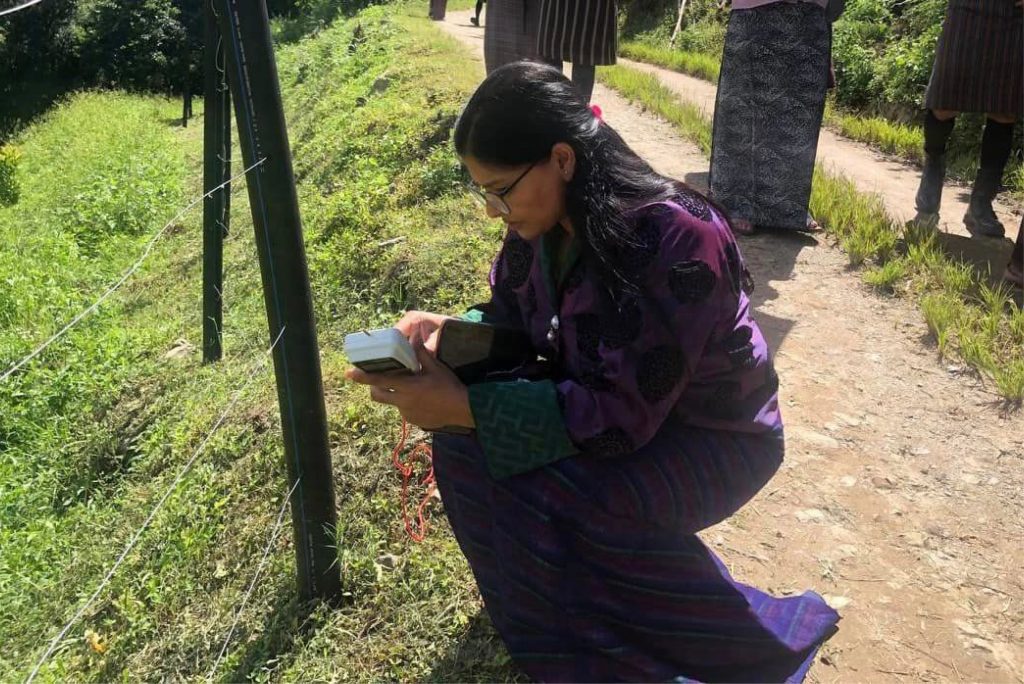
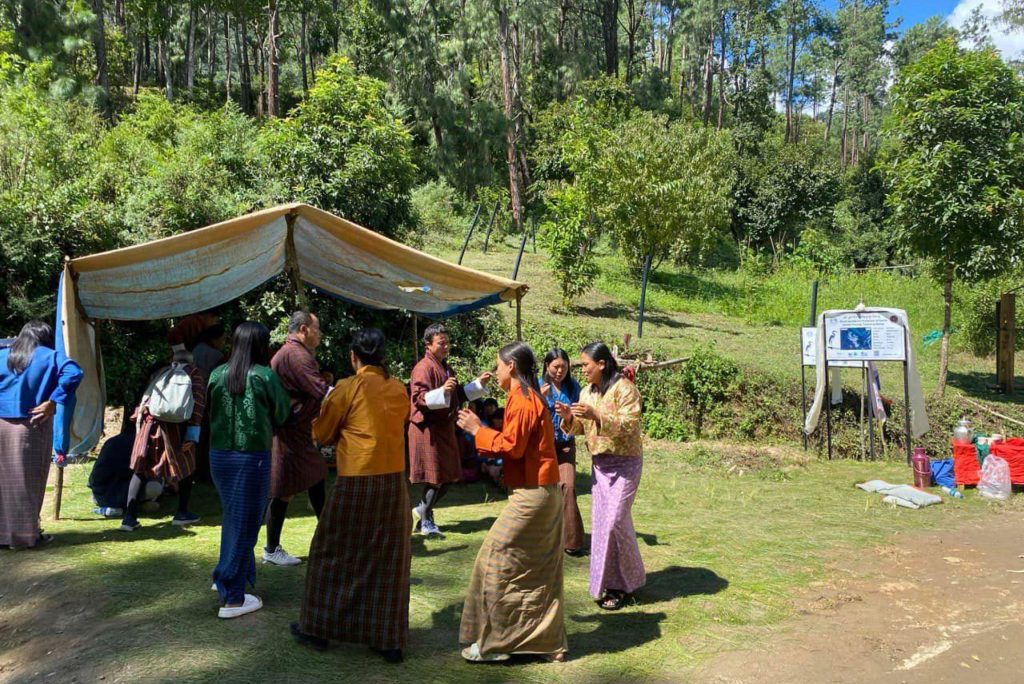
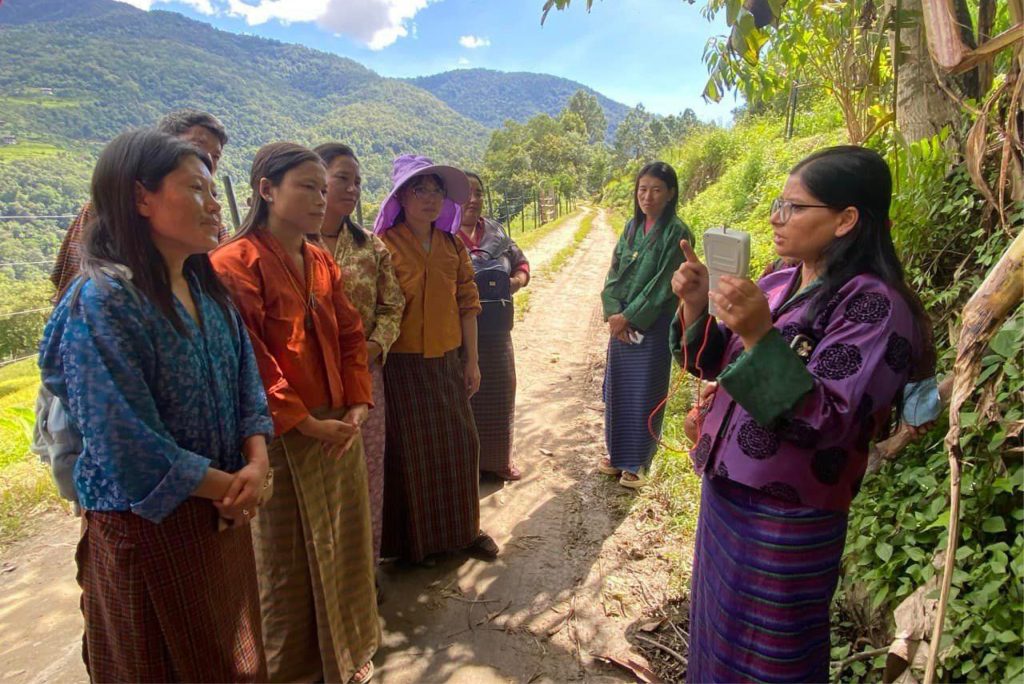
The conservation of White- bellied Heron is a matter of urgent global concern. In order to advocate on the importance of conserving the WBH and to discuss the means to collaboratively enhance the conservation effort, RSPN staff of White-bellied Heron Conservation team organized an advocacy program to Dzongkhag livestock, agriculture and Tsirangtoe gewog staffs on 11th October 2024.The WBH -CC team member made a guided tour for the participants and presented on the ecology and some of the conservation approaches RSPN applies in reviving and sustaining the low population of WBH.
The program began with a presentation on RSPN roles and the White- bellied Heron ecology, the benefits of conserving WBH (ecological, socioeconomic), and means to mitigate the threats to WBH. Participants were divided into two groups, they were introduced to captive breeding facilities of WBH and explained about the standard protocol involved in breeding, rearing and feeding WBH. In between the session participants were encouraged strongly to raise questions and doubts, allowing them to voice their thoughts and curiosity about the WBH conservation.
Later a discussion on the preventive measures and response plans for potential outbreaks of avian diseases were also discussed with livestock officials. The advocacy program successfully met its objectives of raising awareness and fostering a sense of responsibility towards environmental conservation. Feedback from the participants indicated that the program was both educational and inspiring.
The participants saw mixed groups of people with presence of both the gender. In total there were 5 numbers of female participants and 28 numbers of male participants from the community.
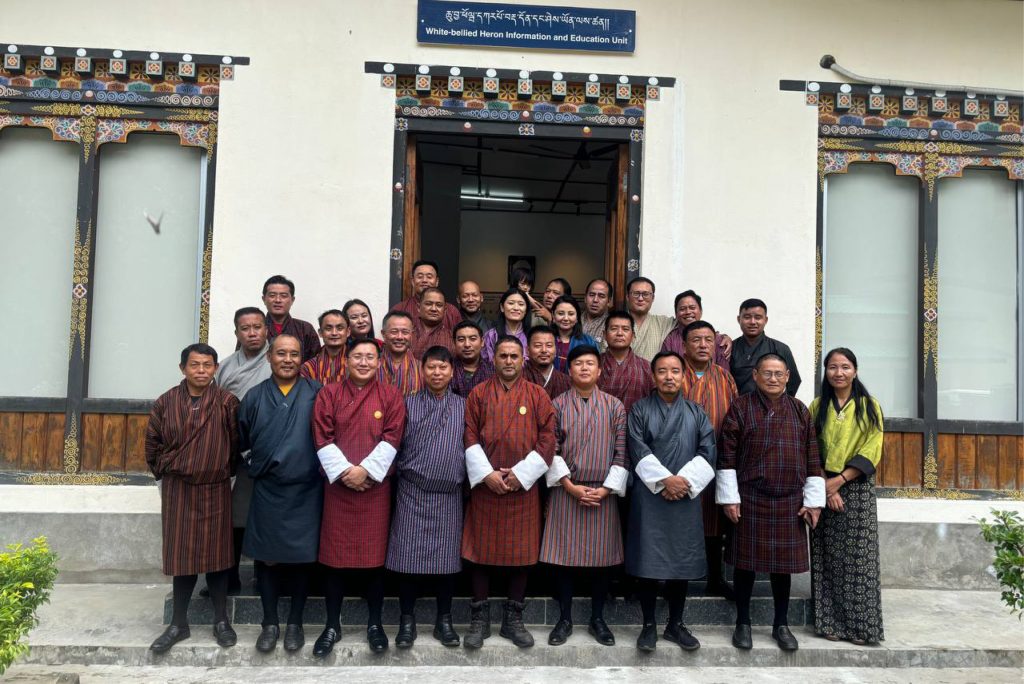
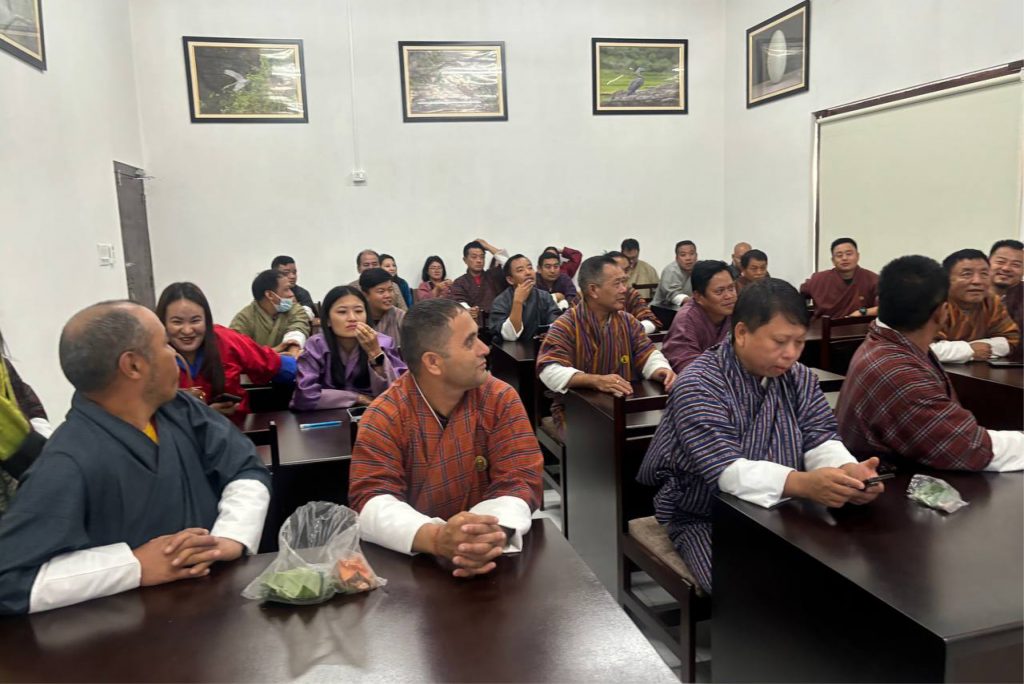
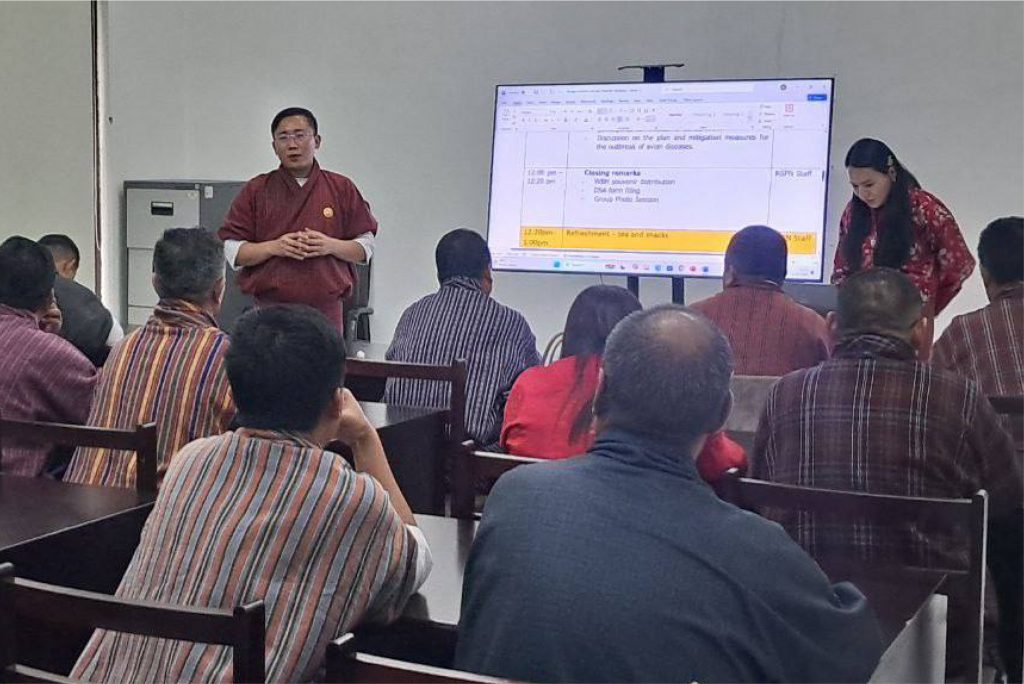
The Royal Society for the Protection of Nature (RSPN) staff of White-bellied Heron Conservation team organized an advocacy program to Bjimithangkha primary school sector staff on 6th October 2024 as part of a conservation initiative focused on the White-bellied Heron (WBH). The conservation of White- bellied Heron is a matter of urgent global concern. Educating the importance of conservation efforts plays a crucial role in safeguarding our biodiversity. Only less than 60 individuals of WBH remain in the world. Bhutan is fortunate to be one of the last refuges for this majestic bird, particularly within the habitat along the Punatsangchhu river in Wangdue district.The WBH -CC team member made a guided tour for the participants and presented on the ecology and some of the conservation approaches RSPN applies in reviving and sustaining the low population of WBH.
The day program began with a presentation on RSPN roles and the White- bellied Heron ecology, the benefits of conserving WBH (ecological, socioeconomic) and means to mitigate the threats to WBH. Participants were divided into two groups, they were introduced to captive breeding facilities of WBH and explained about the standard protocol involved in breeding, rearing and feeding of WBH. The program also highlighted the significant role schools can play in conservation efforts and furthermore the school leader shared about their environmental education program such as cleaning campaign and advocacy program on WBH to be held in their district. In between the session participants were encouraged strongly to raise questions and doubts, allowing them to voice their thoughts and curiosity about the WBH conservation.
The advocacy program successfully met its objectives of raising awareness and fostering a sense of responsibility towards environmental conservation. Feedback from the participants indicated that the program was both educational and inspiring. The knowledge and inspiration gained from this visit will have a lasting impact, not only on the teacher themselves but also on the students and communities they serve.
The advocacy program successfully met its objectives of raising awareness and fostering a sense of responsibility towards environmental conservation.The participants represented both genders, but there was a higher number of male participants, leading to a male-dominated group. However, all participants contributed equally and actively to the session, regardless of gender.In total there were 6 numbers of female participants and 15 numbers of male participants.
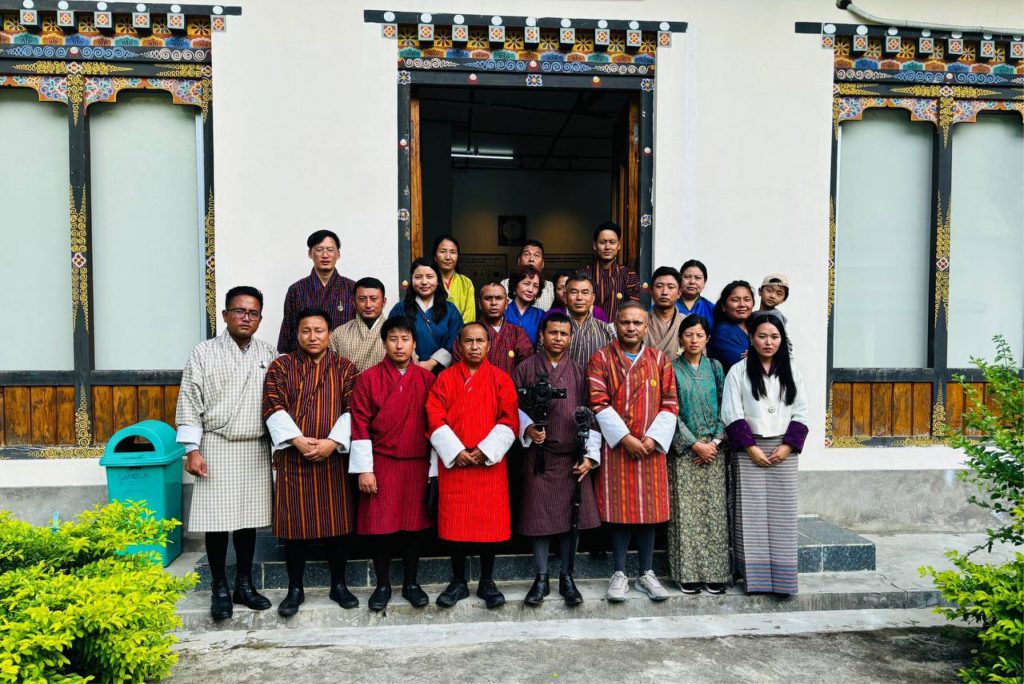
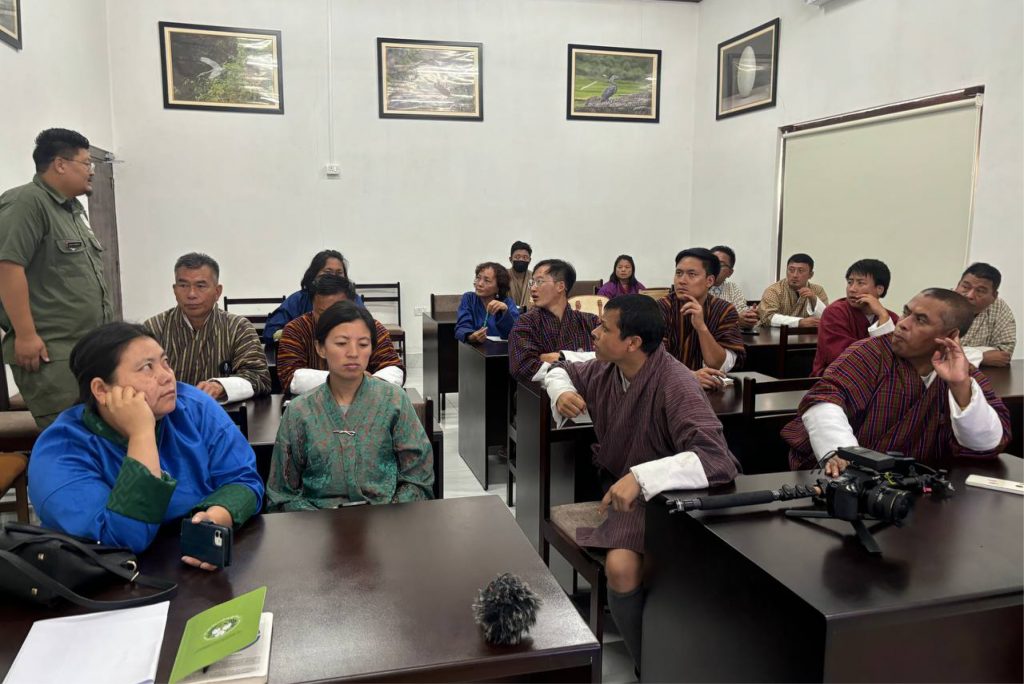
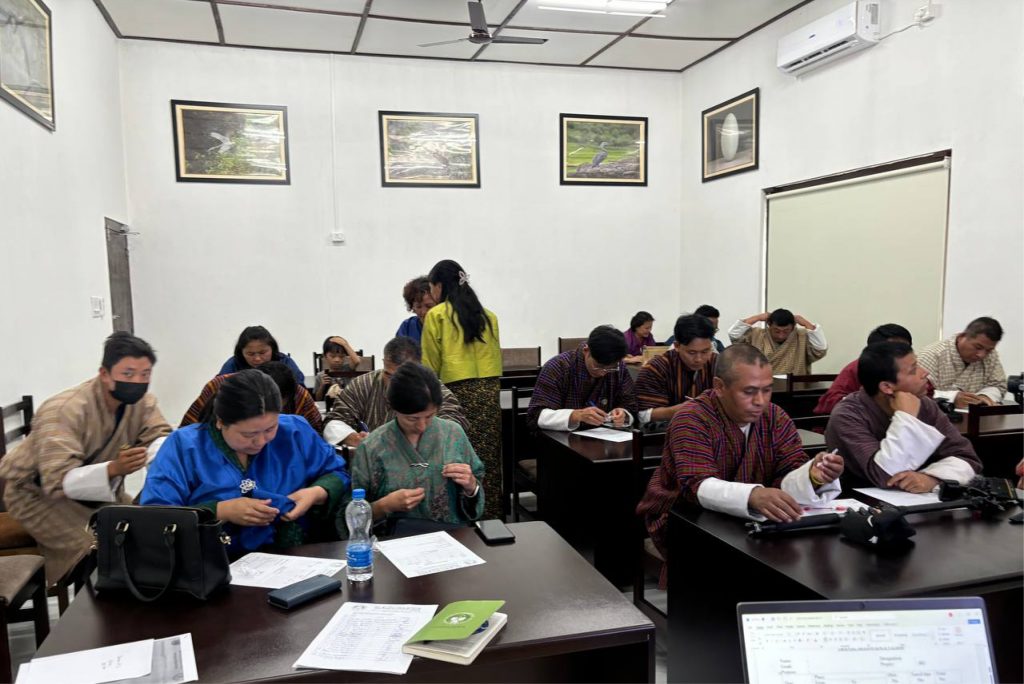
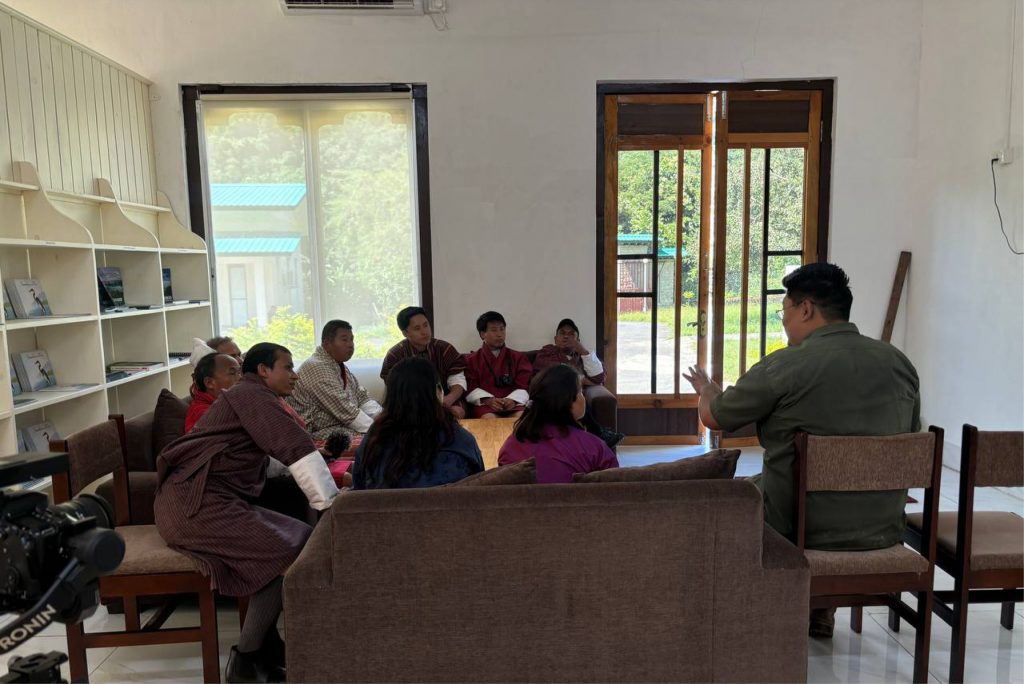
Copyright © 2025 RSPN All Rights Reserved